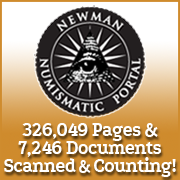
About UsThe Numismatic Bibliomania Society is a non-profit organization devoted to the study and enjoyment of numismatic literature. For more information please see our web site at coinbooks.org SubscriptionsThose wishing to become new E-Sylum subscribers (or wishing to Unsubscribe) can go to the following web page link MembershipThere is a membership application available on the web site Membership Application To join, print the application and return it with your check to the address printed on the application. Membership is only $20 to addresses in the U.S., $25 for First Class mail, and $30 elsewhere. For those without web access, write to: Terry White, Treasurer
AsylumFor Asylum mailing address changes and other membership questions, contact Terry at this email address: terrywhite5475@yahoo.com SubmissionsTo submit items for publication in The E-Sylum, just Reply to this message, or write to the Editor at this address: whomren@gmail.com BUY THE BOOK BEFORE THE COINSale Calendar |
- WAYNE'S WORDS: THE E-SYLUM JULY 24, 2016
- NEW BOOK: MODERN UNITED STATES DOLLAR COINS
- NEW BOOK: FLYING EAGLE AND INDIAN HEAD CENTS, 3RD ED.
- NEW BOOK: CONFEDERATE NUMISMATICA, PART 1
- NEW PRICE GUIDE: CAC MARKET VALUES
- NEWMAN PORTAL RELEASES NEWMAN-FORD CORRESPONDENCE
- COMMENTS ON THE NEWMAN NUMISMATIC PORTAL
- THE 1879 WEYL WANT LIST
- NOTES FROM E-SYLUM READERS: JULY 24, 2016
- THE COIN NEWS
- COLLECTOR EUGENE H. GARDNER, 1936-2016
- GREG REYNOLDS REMEMBERS GENE GARDNER
- LOONIE DESIGNER ROBERT-RALPH CARMICHAEL, 1937 - 2016
- ALBERT HARLAN POMEROY (1852-1926)
- THE ORIGINAL MOTTO PROJECT OVERSTAMP
- ORDERS & MEDALS SOCIETY TO MEET IN PITTSBURGH
- RECENT COINWEEK VIDEOS AND PODCASTS
- MEET JOHN MERCANTI AND ED MOY AT ANA SHOW
- SELECTIONS FROM HERITAGE 2016 ANA SALE
- STACKS-BOWERS 2016 ANA SALE SELECTIONS
- STACKS-BOWERS 2016 ANA RARITIES SALE SELECTIONS
- 1847 ZACHARY TAYLOR GOLD MEDAL
- SHEVLIN'S SO-CALLED DOLLAR PRICE LIST #9 SELECTIONS
- STAIRCASE PAINTED TO LOOK LIKE BOOKS
- SILVER COINS OF THE CENTRAL AMERICAN REPUBLIC
- SCOTLAND CONSIDERING A SEPARATE CURRENCY
- BANKNOTE MUSEUM OF THE IONIAN BANK
- 1847 NAVAL SILVER GENERAL SERVICE MEDAL
- WHY OLYMPIC GOLD MEDALS AREN'T GOLD
- 2016 RIO OLYMPIC 50 PENCE STRUCK IN GOLD
- HOT CENTS INFLICT THIRD DEGREE BURNS
- FEATURED WEB SITE: ORDERS AND MEDALS SOCIETY
Click here to access the complete archive
To comment or submit articles, reply to whomren@gmail.com
WAYNE'S WORDS: THE E-SYLUM JULY 24, 2016
New subscribers this week include: Mashiko, courtesy of Joe Esposito. Welcome aboard! We now have 1,994 subscribers.
This week we open with three new books, a new price guide, information and commentary on the Newman Numismatic Portal, and an important revelation (for American numismatists, anyway) about the first appearance of the Dexter 1804 Dollar.
Other topics this week include The Coin News, the designer of the Canadian "Loonie" dollar, the Orders & Medals Society, ANA auction selections, Scotland's potential new currency, and why Olympic gold medals aren't.
To learn more about Confederate Numismatica, fourth-party grading, the 1879 Weyl Want List, cleaning copper coins, the unique 1796 Washington Dollar, the DuPont Explosion pattern Quarter, and the no-S Panama-Pacific Half Dollar, read on. Have a great week, everyone!
Wayne Homren
Editor, The E-Sylum
NEW BOOK: MODERN UNITED STATES DOLLAR COINS
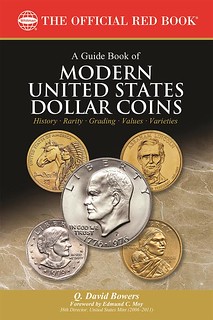 Whitman Publishing announces the release of A Guide Book of Modern United States Dollar Coins, by Q. David Bowers. The 320-page book
(number 22 in the popular Bowers Series) debuts July 26 and will be available from booksellers and hobby shops nationwide, and online (including at
www.Whitman.com), for $19.95.
Whitman Publishing announces the release of A Guide Book of Modern United States Dollar Coins, by Q. David Bowers. The 320-page book
(number 22 in the popular Bowers Series) debuts July 26 and will be available from booksellers and hobby shops nationwide, and online (including at
www.Whitman.com), for $19.95.
The Bowers Series is a popular Whitman Publishing library of numismatic books, each covering a different segment of the hobby. Volume 22
explores the full range of modern U.S. dollar coins: Eisenhower, Susan B. Anthony, Sacagawea, Native American, and Presidential. These
coins, the successors to the silver Morgan and Peace dollars of yesteryear, have been minted from 1971 to the present day in various sizes,
alloys, and themes.
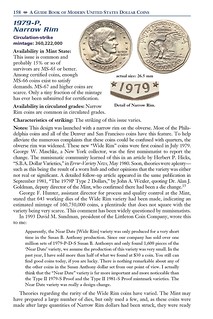 “When I started writing this book, I thought it would be straightforward and simple,” says award-winning author Q. David Bowers, the most
prolific numismatic writer in American history. “Instead I found these coinage series to be as complex and nuanced as any of the classics—a delight
for collectors. All of them are fun to collect, with historic designs to engage the beginner and some interesting challenges for the specialist.”
“When I started writing this book, I thought it would be straightforward and simple,” says award-winning author Q. David Bowers, the most
prolific numismatic writer in American history. “Instead I found these coinage series to be as complex and nuanced as any of the classics—a delight
for collectors. All of them are fun to collect, with historic designs to engage the beginner and some interesting challenges for the specialist.”
Research assistance from longtime coin dealers and collectors, U.S. Mint officials, and hobby organizations such as the Ike Group rounds out Bowers’s own active study of these coins. His detailed coverage includes history, mintages, die varieties, grading standards, keys to assembling high-quality collections, and market analysis. More than 800 full-color images, including close-ups of Eisenhower dollar reverse design variations, illustrate the book. Historical photographs provide rare behind-the-scenes insight into the creation of the 200-plus coins cataloged.
“There are many highways and byways to explore in the world of modern U.S. dollar coins,” said Edmund Moy, 38th director of the United States Mint (2006–2011). “This book is the essential guide to the subject. It is comprehensive, written for the new and seasoned collector alike, and authoritative, as one would expect from numismatic legend Q. David Bowers.”
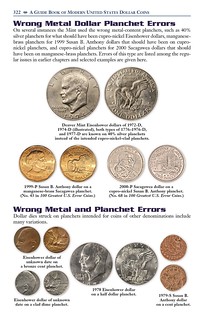 Appendices include a reflection on the Eisenhower dollar by Charles Morgan; a richly illustrated 11-page study of modern dollar error
coins; and a “what might have been” gallery of proposed Native American dollar designs of 2009 to 2016.
Appendices include a reflection on the Eisenhower dollar by Charles Morgan; a richly illustrated 11-page study of modern dollar error
coins; and a “what might have been” gallery of proposed Native American dollar designs of 2009 to 2016.
Because Whitman Publishing is the Official Supplier of the American Numismatic Association, ANA members receive 10% off the book when purchasing directly from the publisher. It can also be borrowed for free as a benefit of ANA membership, through the Dwight N. Manley Numismatic Library.
A Guide Book of Modern United States Dollar Coins
By Q. David Bowers; foreword by Edmund C. Moy, 38th Director of the United States Mint (2006–2011)
ISBN 0794843980 · 6 x 9 inches, softcover, 320 pages, full color · Retail $19.95 U.S.
For more information, or to order, see:
A Guide Book of
Modern United States Dollar Coins
(www.whitman.com/store/Inventory/Detail/A-Guide-Book-of-Modern-United-States-Dollar-Coins+0794843980)
NEW BOOK: FLYING EAGLE AND INDIAN HEAD CENTS, 3RD ED.
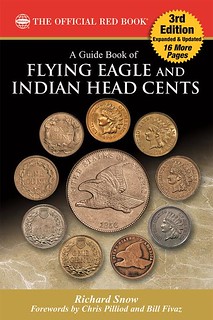 When the first edition of the Guide Book of Flying Eagle and Indian Head Cents came out in May 2006, the hobby community was long
overdue for a new reference on these two coinage series. At that point it had been more than a decade since a book-length study was published. This
didn’t indicate a lack of collector interest—on the contrary, many numismatic writers were sharing new research online and in print. The Flying Eagle
and Indian Cent Collectors Society (popularly known as the “Fly-In Club,” online at www.fly-inclub.org), chartered in 1991, had hundreds of active
members. One of its most famous members and the source of much of the new published research was specialist Richard “Rick” Snow. Rick was well known
to us at Whitman Publishing; he volunteered as a pricing contributor and advisor to the Guide Book of United States Coins (the “Red Book”). He
was the perfect author for volume 6 in the Bowers Series.
When the first edition of the Guide Book of Flying Eagle and Indian Head Cents came out in May 2006, the hobby community was long
overdue for a new reference on these two coinage series. At that point it had been more than a decade since a book-length study was published. This
didn’t indicate a lack of collector interest—on the contrary, many numismatic writers were sharing new research online and in print. The Flying Eagle
and Indian Cent Collectors Society (popularly known as the “Fly-In Club,” online at www.fly-inclub.org), chartered in 1991, had hundreds of active
members. One of its most famous members and the source of much of the new published research was specialist Richard “Rick” Snow. Rick was well known
to us at Whitman Publishing; he volunteered as a pricing contributor and advisor to the Guide Book of United States Coins (the “Red Book”). He
was the perfect author for volume 6 in the Bowers Series.
In the preface to the first edition, I described what he brought to the project: “Rick has seen and handled all the coins in these series, he has attributed and cataloged them in other references, and, as a founding member and officer of the Flying Eagle and Indian Cent Collectors Society (and editor of its journal, Longacre’s Ledger), he has been at the center of the hobby for more than a decade. His expertise in this field has made Rick the ‘go-to’ correspondent when a new variety is discovered, when questions arise among other experts, and when nuances of grading or attribution are in dispute.”
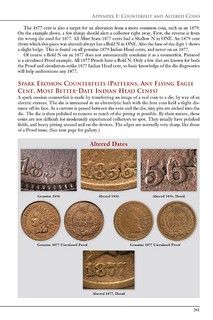 To this expertise we added an introduction by Q. David Bowers, the “Dean of American Numismatics” and inspiration behind the Bowers Series
of reference books. Dave covered the rich history of both series, sharing advice on collecting, guidance on grading, and other valuable insight.
To this expertise we added an introduction by Q. David Bowers, the “Dean of American Numismatics” and inspiration behind the Bowers Series
of reference books. Dave covered the rich history of both series, sharing advice on collecting, guidance on grading, and other valuable insight.
The new book proved popular, and we published an expanded second edition in 2009. This included 32 more pages, updated pricing and other market data, new illustrations, and new appendices on pattern cents, toned Proofs, and auction records. In the meantime Rick Snow continued his work as the foremost specialist in these series.
Now, in the 10th-anniversary year of the first edition (and the 160th anniversary of the first Flying Eagle cents), Whitman is publishing the third edition of A Guide Book of Flying Eagle and Indian Head Cents. We’ve refreshed the book’s layout, and added new historical illustrations and coin images, along with 16 pages of brand-new content. Rick Snow has meticulously reviewed the text and updated it with the latest research and information. A new appendix by award-winning coin dealer and numismatic exhibitor Charmy Harker showcases remarkable pieces of American material culture crafted from Flying Eagle and Indian Head cents. The addition of an index adds to the book’s reference value. And the author has used this opportunity to illustrate his innovative new grading system for small cents—a set of guidelines with the potential to revolutionize the hobby.
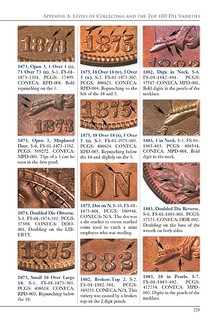 These elements combine to make the third edition of A Guide Book of Flying Eagle and Indian Head Cents a valuable addition to every
numismatist’s bookshelf. The book will debut in September and we’ll have a sneak peek at the Whitman Publishing booth at the American Numismatic
Association World’s Fair of Money in Anaheim, in August.
These elements combine to make the third edition of A Guide Book of Flying Eagle and Indian Head Cents a valuable addition to every
numismatist’s bookshelf. The book will debut in September and we’ll have a sneak peek at the Whitman Publishing booth at the American Numismatic
Association World’s Fair of Money in Anaheim, in August.
A Guide Book of Flying Eagle and Indian Head Cents
By Richard Snow; forewords by Chris Pilliod and Bill Fivaz
ISBN 079484412X
Softcover, 6 x 9 inches
304 pages
Full color
Retail $19.95 U.S.
For more information, or to order, see:
www.whitman.com
THE BOOK BAZARRE
NEW BOOK: CONFEDERATE NUMISMATICA, PART 1
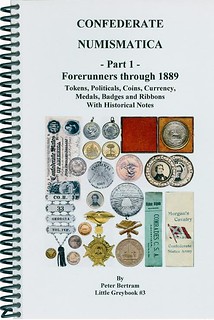 CONFEDERATE NUMISMATICA - Part 1
CONFEDERATE NUMISMATICA - Part 1
Forerunners through 1889 - Tokens, Politicals, Coins, Currency, Medals, Badges and Ribbons With Historical Notes
- 15+ Breckinridge 1860 politicals not listed in Sullivan!
- 50+ listings of “Wealth of the South” mulings from two Civil War era auction catalogs (some strange ones!).
- Illustrated history of the Confederate Cent and all its descendants from 1861-2005.
- How to identify the seven 1861-O Half Dollar varieties struck under Confederate authority.
- A capsule history of Confederate currency and images of all 72 type notes.
- Images of all 10 currently known Davis Flight Medals along with a short history of the Confederacy’s last days to put them in context.
- A detailed listing of Confederate ladder badges identified by Type Numbers!
- An old 2002 sold out booklet: Fake Confederate ID Discs republished in the End Notes.
- And much more - many previously unpublished images, lots of history, etc.
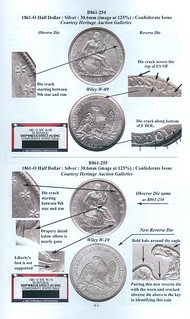
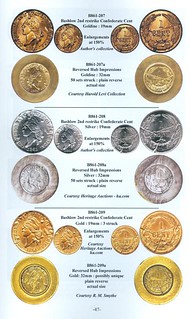
200 pages : 5 ½ x 8 ½ : soft cover, spiral bound : Price Guide : Over 700 individual images (90% in color)
$35.00 + S/H (S/H to a US address is $4 Media Mail -OR- $7 Priority Mail) : Outside USA, please email for S/H.
Checks drawn on US Banks, US Postal Money Orders, and PayPal accepted
Peter Bertram
PO Box 924391
Norcross, GA 30010-4391
peterbatl@aol.com
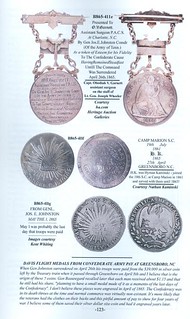
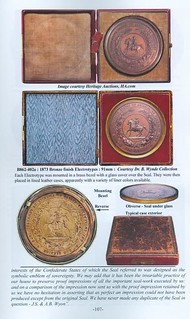
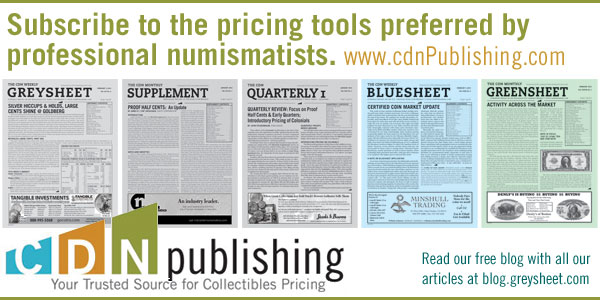
NEW PRICE GUIDE: CAC MARKET VALUES
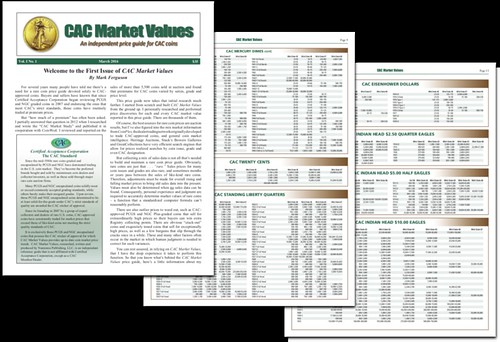
PCGS and NCG coins that have been approved and stickered by CAC command premium prices compared with coins that lack the CAC sticker. But exactly how much more should collectors and dealers pay or ask for CAC coins when buying or selling?
Now expert rare coin pricing analyst Mark Ferguson, Principal of Numisma Publishing, has launched CAC Market Values, the first and only independent monthly price guide exclusively for CAC coins. “With our new price guide, buyers and sellers of CAC coins can value them with confidence,” says Ferguson, who serves as editor and lead pricing analyst of CAC Market Values. “With our reliable and accurate pricing data, you can avoid paying too much when buying CAC coins or charging too little when you sell – maximizing your profit on every coin deal you make.”
Published monthly, CAC Market Values keeps subscribers up-to-date on ever-changing market prices for CAC-approved rare coins. What’s more, as Ferguson explains, “Market values are presented as high and low median ranges, providing subscribers with the true price spreads CAC coins are really trading at.”
What makes Mr. Ferguson uniquely qualified to value rare coins? He’s been an independent coin dealer since 1969, served as a professional coin grader for PCGS, and was the primary market analyst for Coin World’s Coin Values price guide for 8 years. And he states, “In 2012, I researched and wrote the highly-requested CAC Market Study, published in association with CoinWeek.” The study measured price premiums for CAC-approved type coins by selected grades.
Now, as publisher of the only independent monthly price guide exclusively for CAC coins, Mark Ferguson has painstakingly researched and analyzed tens of thousands of individual sales of CAC-approved coins to build CAC Market Values from the ground up.
I called CAC a "fourth-party grader". Mark hadn't heard that term before. Come to think of it, I don't think I'd heard the term before, either. It just seemed like a concise expression. PCGS and NGC are called third-party graders (sometimes abbreviated TPGs). Parties 1 and 2 are the buyer and seller in a coin transaction. The third party is an outside expert giving their opinion on the coin.
CAC introduces a fourth party reviewing the work of the third party, placing their seal of approval (their CAC sticker) on the TPG's slab. Yeah, it's enough to make your head spin, but such is the reality of today's marketplace. Anyway, good luck to Mark in his new publishing venture. -Editor
For more information, or to order, see:
www.cacmarketvalues.com
For more information about Certified Acceptance Corporation, see:
www.caccoin.com
THE BOOK BAZARRE
NEWMAN PORTAL RELEASES NEWMAN-FORD CORRESPONDENCE
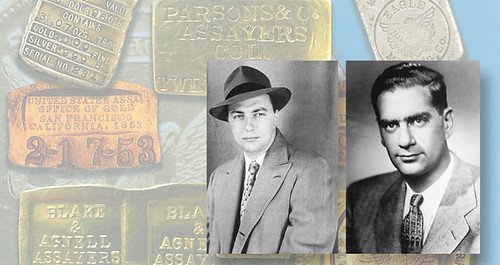
Between 1949 and 1966, St. Louis collector Eric P. Newman and New York dealer John J. Ford, Jr. carried on an active and lively correspondence covering the gamut of American numismatics, from little known colonial coins to politics of the national organizations. Their introduction was made by Wayte Raymond, best known today for the Standard Catalogue of United States Coins published in multiple editions from 1934 to 1958. Following Raymond’s suggestion, Ford wrote to Newman on September 7, 1949, requesting information on the 1785 Inimica Tyrannis America Confederatio cent, for a proposed article in The Numismatist. Newman responded quickly, noting he was “very interested” in Ford’s inquiry and offering to exchange coins in other colonial series. Newman concluded by saying “you may count on me” for assistance with Ford’s proposal.
The two correspondents quickly hit it off, sharing an intense passion for early American issues and an equal disdain for the speculation in current American coins that was taking root in the 1950s. Their common interest in colonial coinage led to the first substantial test in the relationship, as the brash New Yorker and the patrician Newman competed for the F. C. C. Boyd estate that was broken up following Boyd’s passing in 1958. Ford succeeded in placing the Boyd collection of Massachusetts silver (previously from T. James Clarke) with Emery Mae Norweb of Cleveland, much to Newman’s dismay, as he had had a gentlemen’s agreement with Boyd for first right of refusal if Boyd decided to sell.
The final rupture in the relationship came in 1966 as Newman believed Ford was knowingly selling forged copies of the 1853 United States Assay Office of Gold (USAOG) twenty-dollar gold pieces. Ford began selling these in the late 1950s, but it was not until the Professional Numismatist’s Guild (PNG) inquiry in 1966 that the situation came to a head. The PNG took the middle road, ruling that a buyer of one of the pieces was entitled to a refund, but stopping short of describing the pieces as forgeries. Newman disagreed, and the break between himself and Ford was complete. Further details, including the David McCarthy discovery of the host coin for the OSAOG forgeries, may be in found in Truth Seeker: The Life of Eric P. Newman, recently published by Ivy Press.
The Newman files contain both incoming and outgoing correspondence, the latter generally represented by carbon copies. In some cases, Newman’s original handwritten drafts survive and are accompanied by the typed versions. In between, the personalities of Newman and Ford are on full display in this 700-page archive. Newman measures words carefully, following his training as an attorney. Ford speaks informally and is clearly no stranger to colorful language. Both are intensely curious and determined to solve numismatic mysteries. The contrast and camaraderie make for compelling reading and completely detail an important chapter in the history of American numismatics.
The Newman-Ford correspondence is available on the Newman Numismatic Portal at https://nnp.wustl.edu/library/archivedetail/513417. The Newman Portal, administered through Washington University in St. Louis, is sponsored by the Eric P. Newman Numismatic Education Society with the goal of delivering information on American numismatics on a free and forever basis to the collecting and research community. The Newman Portal currently contains over 7500 documents including books, periodicals, auction catalogs, and archival material.
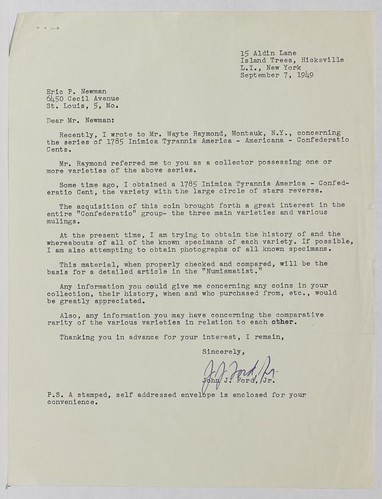
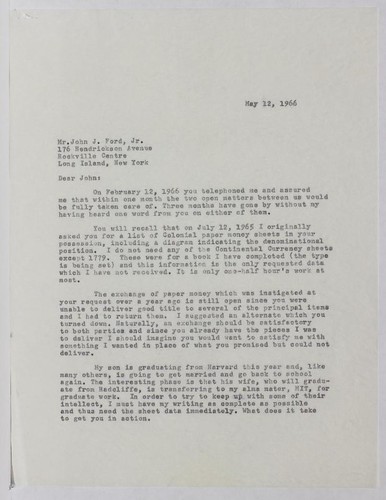
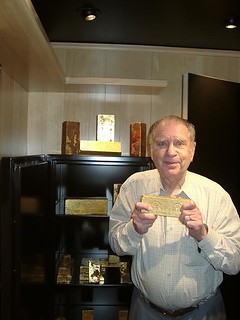
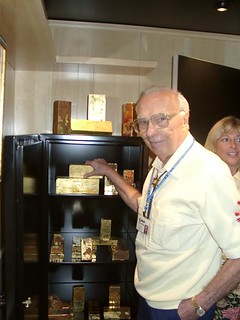
To read the complete Coin World article, see:
Newman Numismatic Portal
adds Eric P. Newman, John J. Ford Jr. correspondence
(www.coinworld.com/news/us-coins/2016/07/numismatic-portal-adds-newman-ford-correspondence.html)
To view the Eric P. Newman Correspondence with John J. Ford, Jr., see:
https://nnp.wustl.edu/library/archivedetail/513417
For more information on the Newman Truth Seeker biography, see:
NEW BOOK: TRUTH SEEKER: THE LIFE OF ERIC P. NEWMAN
(www.coinbooks.org/esylum_v19n03a04.html)
COMMENTS ON THE NEWMAN NUMISMATIC PORTAL
California State Numismatic Association
Regrding the digitization of their journal CalCoin News, California State Numismatic Association President Howard Felt writes:
These are fantastic, I have visited the site and already making copies for my own files, I will make issue No-1, February 1947, available to all CSNA Exc. Board Members, thank-you and Newman Numismatics for the fine job, you both have exceeded my dreams on how this project would turn out.
Pennsylvania Association of Numismatists
Regarding the digitization of their journal The Clarion, Pennsylvania Association of Numismatists Treasurer Pat McBride writes:
Thank you so very much for seeing this through. Please thank the NNP, the university, and Eric Newman for myself and PAN. It is our recommendation that all numismatic organizations allow their content to become available through the NNP.
Author Harold Levi
Harold Levi writes:
For some time now I have threatened to send you a message about the Newman Portal. In the June 1, 2004, John J. Ford, Jr. library auction sale, the Private Letter Copy Book of C.G. Memminger was sold. It was stated that the letters covered Memminger’s activities from his appointment as Secretary of the Treasury until the outbreak of war. It was stated that many of the letters were of great numismatic interest. None of the contents of any letter was revealed since that would diminish the value of the book, or so the auction company said.
I am convinced that the details of the Confederate cent is out there somewhere buried in a book in someone's collection. I understand the concerns about ownership of printed material, but making old books and newspapers available on the Internet is great! If you want to learn about the Civil War then you go to Documenting the South, a digital library at the University of North Carolina - Chapel Hill. They have hundreds of rare and out-of-print diaries, memoirs, autobiographies, and government records available on-line for reading and research. Future numismatic researchers will have a much easier time finding those little tidbits that really tell the story.
I am able to research my mother's people because of the St. Petersburg, Fla. newspapers being digitized and on the Internet. They were "sand merchants" (Realtors) in Pinellas County back in the 1920s. I have learned that the Treasure Island Causeway was supposed to have been named: Donovan Causeway. My GGrandfather E.A. Donovan did all of the negotiations with landowners, city, state, and federal departments to get the construction approved, but the Crash of '29 ended it all.
A resounding Thank You to Eric Newman for placing rare documents at the fingertips of lowly folks like myself.
To visit the Newman Numismatic Portal, see:
www.newmanportal.org

THE 1879 WEYL WANT LIST
Heritage catalogers John Sculley, Zeke Wischer, and I want to thank you for the kind review of our Coin World article (July 18, 2016 edition) on the 1884 Adolph Weyl catalog and the Dexter 1804 dollar that appeared in the last issue of The E-Sylum. The E-Sylum always goes to great lengths to get things right. In that spirit, I would like to say a little more about possible appearance of the 1804 dollar in a “group lot in an 1879 auction” mentioned in Mark Ferguson’s book as reviewed by Bill Eckberg.
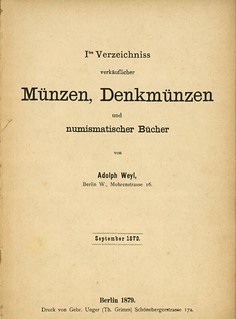 Beginning on page 82 of his September 1879 auction catalog (Weyl Figure 1), after the main body of the sale, Weyl printed several pages of
what appeared to be numbered bulk lots of coins from different countries, under the heading Kauf-Gesuche! (Weyl Figure 2). Lot 83 in the list,
in the section on United States coins, appeared to be a remarkable gathering of U.S. silver dollars, including many rare dates, the 1804 among them
(Weyl Figure 3). Non-German-speaking numismatists, including myself, were very excited about the discovery of this list, which we took to be some
kind of addendum to the sale, probably added at the last minute. This seemed to push the first European appearance of an 1804 dollar back five years
before the famous Weyl sale of October 1884, and the only likely candidate for such an appearance was the Dexter dollar, whose prior history was
unknown before that offering.
Beginning on page 82 of his September 1879 auction catalog (Weyl Figure 1), after the main body of the sale, Weyl printed several pages of
what appeared to be numbered bulk lots of coins from different countries, under the heading Kauf-Gesuche! (Weyl Figure 2). Lot 83 in the list,
in the section on United States coins, appeared to be a remarkable gathering of U.S. silver dollars, including many rare dates, the 1804 among them
(Weyl Figure 3). Non-German-speaking numismatists, including myself, were very excited about the discovery of this list, which we took to be some
kind of addendum to the sale, probably added at the last minute. This seemed to push the first European appearance of an 1804 dollar back five years
before the famous Weyl sale of October 1884, and the only likely candidate for such an appearance was the Dexter dollar, whose prior history was
unknown before that offering.
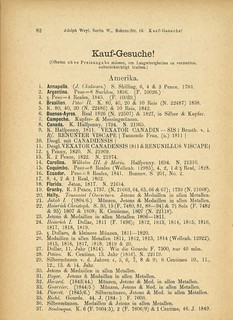
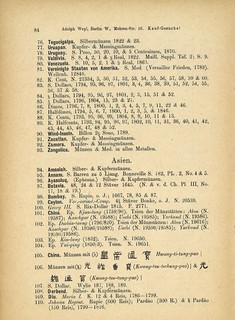
Several important references have mentioned this “appearance” in recent years, but Heritage catalogers became suspicious of it when we studied these catalogs for our auction description of the Mickley 1804 dollar in our 8/2013 Chicago Signature. The fact that all the coins were scarce-to-rare issues and there was no physical description of any of them seemed strange. Checking further, we discovered the Kaufe-Gesuche! was reprinted in Weyl’s next auction catalog in October of 1879 (it may appear in some other contemporary publications, as well, but these have not been reported).
Finally, we enlisted the help of Dagmar Byers, the German-speaking Vice President of Finance & Accounting at Heritage. She informed us that Kaufe-Gesuche! translates very roughly as Want List! Weyl was advertising to buy these foreign coins after his phenomenal success with the Fonrobert Collection in 1878, not offering them for sale himself. Therefore, the October 1884 Adolph Weyl sale remains the first appearance of the Dexter dollar and its prior history remains a mystery.


Bill Eckberg adds:
It’s kind of an odd want list. I looked at the U.S. coppers in the list - it's interesting that some of them are relatively common dates, though many of the half cents are proof-only dates. Also, why no gold on the list?
To try Google Translate, see:
https://translate.google.com/
To read the earlier E-Sylum article, see:
THE RARE AND IMPORTANT 1884 WEYL CATALOG
(www.coinbooks.org/esylum_v19n29a08.html)

Archives International Auctions, Part XXXIV
U.S. & Worldwide Banknotes, Scripophily, Coins
and Security Printing Ephemera
July 26, 2016
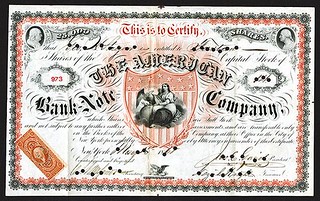
Click the links! Highlights include:
Lot 43: Deutsch-Asiatische Bank 1907 Peking Branch
Lot 44: Russo-Asiatic Bank, 1910 "Harbin Branch" Provisional Issue
Lot 405: Jefferson County Bank. Uniface Proof.
Lot 407: New York State War of 1812 Era Odd Denomination Scrip
Lot 434: C.S.A. 1864, $2, Vertical Half Sheet of 4 Notes.
Lot 481: Spanish-American War, $20, 3% Coupon Bond of 1898
Lot 645: Potomac Gold and Silver Mining Co., 1863 Stock Certificate.
Lot 789: American Bank Note Company, 1868 Stock Certificate
View the Virtual Catalog
Download the Catalog in PDF format
ARCHIVES INTERNATIONAL AUCTIONS, LLC
1580 Lemoine Avenue, Suite #7
Fort Lee, NJ 07024
Phone: 201-944-4800
Email: info@archivesinternational.com
WWW.ARCHIVESINTERNATIONAL.COM
NOTES FROM E-SYLUM READERS: JULY 24, 2016
Quick Quiz: Who's in This 1913 Liberty Nickel Picture?
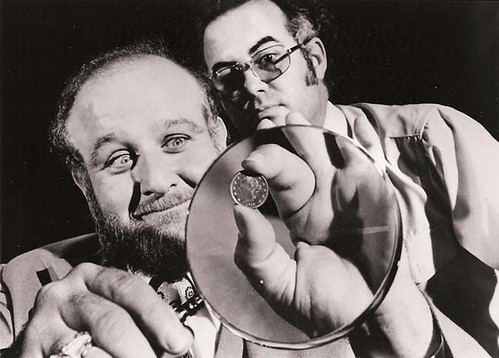
Pete Smith offers this question for E-Sylum readers. He writes:
There is a well-known picture of Victor Buono holding a 1913 Liberty head nickel for an episode of Hawaii Five-O, first shown on December 11, 1973. It has been mentioned that he is holding the coin between his eyes and the magnifying glass.
QUICK QUIZ: Who is the man looking over his shoulder?
Something else isn't right about the photo - if the viewer is seeing the obverse right-side-up, then the actor is looking at the reverse of the coin upside-down. This is one of those show business peculiarities driven by the practicalities of presenting a show to the camera. Real people don't crowd around one side of table for a meal, but in TV shows they always do; otherwise someone would have their back to the camera. So the performers have to do something unnaturally so that the end result looks natural to the viewer. -Editor
Query: Author Clair M. Birdsall Sought
Dennis TUcker of Whitman Publishing writes:
I wonder if any E-Sylum readers personally knew Clair M. Birdsall, author of The United States Branch Mint at Dahlonega: Its History and Coinage (Easley, SC: Southern Historical Press, Inc., 1984) and The United States Branch Mint at Charlotte: Its History and Coinage. (Easley, SC: Southern Historical Press, Inc., 1988)?
I’m writing about Mint–related literature in the preface to Dave Bowers’s upcoming Guide Book of the United States Mint.
Important Hobby Protection Act Article
Gary Trudgen, CNL Associate Editor forwarded this announcement:
With the ever increasing threat of unmarked, high quality numismatic related counterfeits hanging over the hobby, it is very important that collectors be knowledgeable about reproductions of the coins they love. The Hobby Protection Act (HPA), which was passed in 1973, provides current-day collectors protection against this menace.
The upcoming August issue of The Colonial Newsletter (CNL) will contain a must-read article about the HPA. It is the first in-depth analysis of the act governing numismatic replicas since it was passed some 43 years ago. Although the article focuses on colonial coins, the legal analysis is applicable to all types of numismatic material. Written by a third year law student, the article has been edited for legal content by licensed attorneys within the numismatic field and by well- known hobbyists for the numismatic content.
Also contained in the August issue you will find a biographical study of William H. Coley that was written by his great-great- great granddaughter. Coley was a partner in the Vermont Mint (1785-1788) and is credited with engraving the dies used to strike the Vermont landscape coppers.
CNL is published by the American Numismatic Society. If you don’t subscribe to CNL please contact Catherine DiTuri (email: membership@numismatics.org) for information on how to obtain this issue.
Australian Noble Numismatics Auction
Dick Johnson writes:
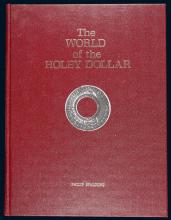 Invaluable.com is an auction alert website for auctions worldwide. A featured auction this week included a 4-day auction in Sydney,
Australia for the firm Nobel Numismatics to be held July 25-28. Besides numismatic items from ancients to currency, It includes jewelry, watches,
documents and a wide variety of collectibles. Of interest to E-Sylum readers are the 34 lots of numismatic literature.
Invaluable.com is an auction alert website for auctions worldwide. A featured auction this week included a 4-day auction in Sydney,
Australia for the firm Nobel Numismatics to be held July 25-28. Besides numismatic items from ancients to currency, It includes jewelry, watches,
documents and a wide variety of collectibles. Of interest to E-Sylum readers are the 34 lots of numismatic literature.
Invaluable included a brief article, “How To Store Your Coin Collection” to promote the auction. The article contains some very basic information, predominantly on American Whitman blue folders and Dansco’s albums. It also mentions custom wooden frames and trays – and surprisingly does not recommend storing coins in bank deposit boxes.
To read the complete article, see:
This is How You Should Store & Display Your Coin
Collection (www.invaluable.com/blog/the-best-ways-to-display-your-coin-collection/)
To view the July 25-28, 2016 auction sessions, see:
Noble Numismatics Pty Ltd
(http://www.invaluable.com/auction-house/noble-numismatics-pty-ltd-8qbk0psri5)
To view the numismatic literature lots, see:
Numismatic Literature lots
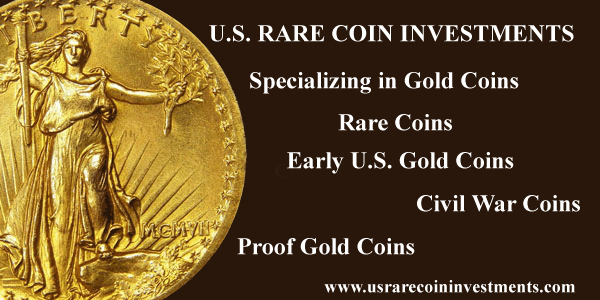
THE COIN NEWS
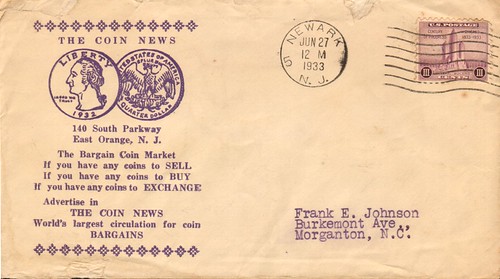
In my eBay searches for old coin boards, albums and related ephemera I sometimes come across postal covers that have a peripheral relation to my hobby. A recent purchase was this illustrated envelope addressed to Frank E. Johnson of Morganton (actually Morgantown), North Carolina from The Coin News in East Orange, New Jersey. This publication was evidently a periodical that took classified ads from buyers and sellers of coins, much like Numismatic News was in its early days.
I did a search on this title and came up with no matching results, and it looked like the trail would go cold right then and there. Fortunately, I noticed that someone (Mr. Johnson?) had written the name A. C. Roessler faintly in pencil on the back, and this proved more fruitful in my searching.
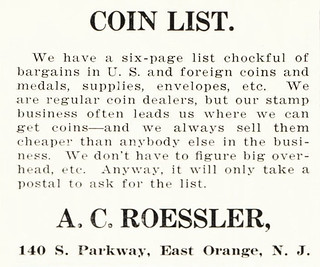 I first checked Volume III of Remy Bourne's book series on Fixed Price Lists & Prices Paid for Lists of United States Coin
Dealers, this covering the years 1930-1939. He did include Roessler's Bankers Coin Book, but there was no mention of The Coin
News.
I first checked Volume III of Remy Bourne's book series on Fixed Price Lists & Prices Paid for Lists of United States Coin
Dealers, this covering the years 1930-1939. He did include Roessler's Bankers Coin Book, but there was no mention of The Coin
News.
I found several ads in The Numismatist archive for A. C. Roessler that dated from 1927 to 1932. This fits in well with the cancellation date of June 27, 1933. His application for ANA membership was published in the September/October 1909 issue, and he was admitted effective November 1. He was then living in New York City. Moving on to Ancestry.com I further identified him as Albert Charles Roessler, born April 7, 1883. The 1930 federal census listed him as an "order clerk" in the field of "stamps and coins." I suspect that this was an entry error, as he was clearly self-employed by then and the owner of his business. The 1940 census lists Albert Roessler, age 30, and this was evidently the son of Albert, Sr. The latter's mother, Emma Mulcahey, appears in both editions. Did the elder Albert pass away during the intervening decade?
I also did searches on customer Frank E. Johnson in both archives, and I found that he was admitted to the ANA effective November 1, 1927 as member number 3228. His interests were listed as "United States and Colonial." He then lived in St. Marys, Pennsylvania, but he moved to Morgantown four years later. Johnson was born in 1890 and the censuses of 1920 and 1930 both list him as a bookkeeper for a tannery. I couldn't find any later documents that definitively apply to him, as Frank Johnson was, and probably still is, an extremely common name.
I'm attaching images of the envelope and Roessler's ads from The Numismatist. Perhaps a reader can provide more information and an illustration of The Coin News.
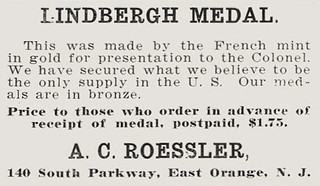
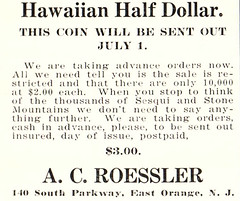
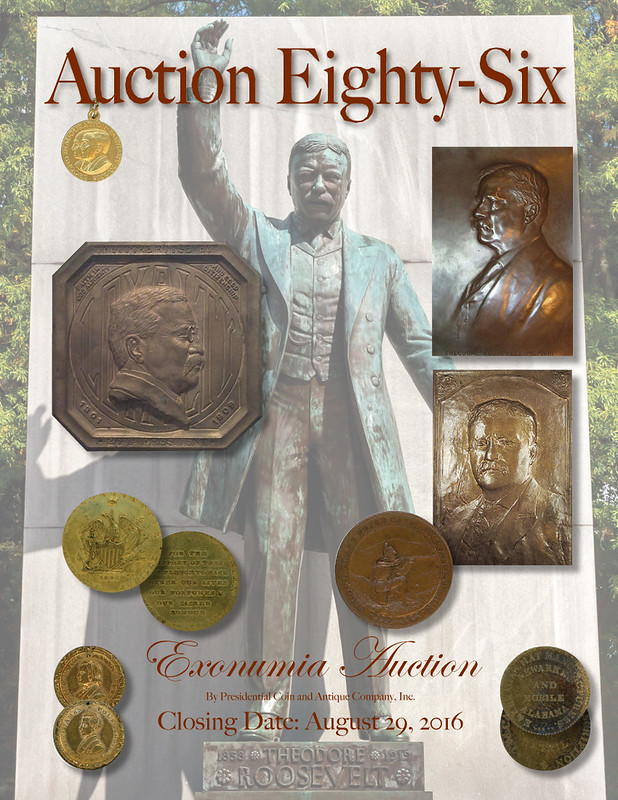
COLLECTOR EUGENE H. GARDNER, 1936-2016
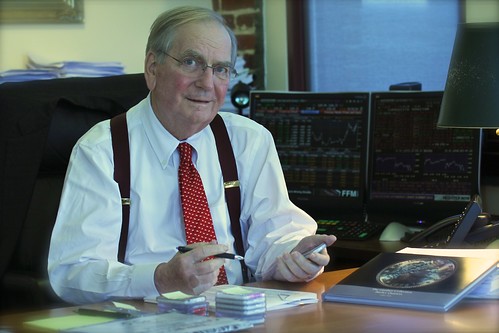
When did you make the jump from kid collector to spending serious money as a serious collector?
It started in 1955. Coin prices were not that high. If you spent $10 or $15 on a coin, that was something. I collected a whole set of Indian proof pennies that were part of the estate of [noted numismatist] Wayte Raymond [1886–1956], and those were gorgeous. They would be [grade level] 67s, at least, today, perhaps 68s. They were truly gorgeous, but they cost 10 bucks. I sold those in 1965, 10 years later, for about $60 or $70. The coins were special. They brought a high price. Today, they would be hundreds or thousands of dollars. So when you ask when I first spent real money on coins, I don’t remember. But it was not significant. It was a little bit here and there.
You purchased coins from the Jordan Marsh department store in Boston back then?
They had a coin department in the basement. They didn’t have super coins, but they had interesting coins, and I bought several. I got to know the dealers in the Boston area. Malcolm Chell-Frost was a person I was close to. I didn’t realize it at the time, but he was really nationally known. He was a contributor to the Red Book guide, a significant numismatist, and a terrific person. The first real coins I bought were from him. I would go down there two or three times a week and he would ration them out to me. I knew he had more, but he would only sell you a couple at a time.
After your 1965 auction, what brought you back to collecting?
It was just a random chance. I was in New York one day, walking along 57th Street, and I walked past Stack’s and something was going on. They were having an auction that night, so I stayed around. It was sticker shock. It was unbelievable. Coins I thought were worth $10, $15 or $20 were suddenly worth $1,000, $1,500, $2,000. But I couldn’t sit still for the whole thing so I bought a 1909-S VDB Lincoln cent. Not a particularly distinguished coin. I paid $935 for it in 1995. It was OK, but it wasn’t the quality I actually would go after. I was very uncertain. I sort of spent the rest of 1995 being about that serious … nosing around but not doing much about it. And then in 1996 was the Eliasberg auction, and that was my first real jump back in.
The second time around, you were more focused?
Well, I had some knowledge, but not enough to really be successful. For instance, when the Eliasberg coins went up for sale, I bought an 1876-CC Liberty Seated 20-cent piece. I knew it was a rare coin and it was the fifth auction lot, so I just bought it. I had no idea if I’d paid too much or too little. I paid $148,500 for it, which at the time everybody seemed to think was a remarkable price. The good news is it’s worth more today. The coins in Eliasberg were all raw. They were not graded. So it was dependent on your ability to grade, and frankly my ability to grade was zero – certainly compared to the people I was competing with, who were some of the real experts in the field. But I was familiar with rarities.
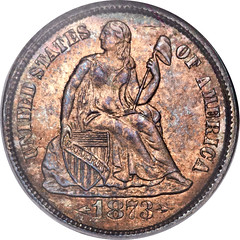
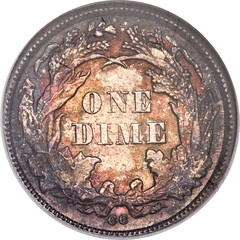
Why have you focused on Seated Liberty coins?
That’s just the way the collection developed. I’ve wound up with an unbelievable collection of Liberty Seated coins. I’ve collected all series. The dollars, half dollars, quarters, dimes, half dimes. They are all complete, in high-grade mint state, probably averaging [a grade of] close to 65 and 66. And I’ve also collected them complete in proof, from 1837 to 1891 – in all series, missing only one coin, the 1853 half dime. That’s the way the collection developed. I always had an affinity for the quarters. People kept saying “You’ll never complete the quarters. You just can’t do it. They are the toughest series to complete in highest quality.” That just spurred me on.
To read the earlier E-Sylum article, see:
INTELLIGENT COLLECTOR INTERVIEWS GENE GARDNER
(www.coinbooks.org/esylum_v17n23a18.html)
For the Heritage Gardner Collection sales, see:
Heritage Auctions Presents The
Eugene H. Gardner Collection Of Rare Coins, Across Four Auctions, in 2014 and 2015
(http://coins.ha.com/information/eugene-h-gardner-collection-of-rare-coins.s?type=surl-gardner)
To read Gardner's online obituary, see:
Eugene Herr
Gardner (http://lancasteronline.com/obituaries/eugene-herr-gardner/article_806402ce-a3c0-57fd-9d35-65fde5a52401.html)
GREG REYNOLDS REMEMBERS GENE GARDNER
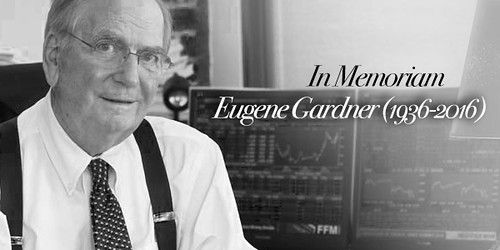
I feel honored to have had the privilege of knowing Eugene H. Gardner, Sr., 80. He was one of the most distinguished, visibly active and enthusiastic collectors in the history of the coin community in the United States. I was saddened to hear of Gene’s passing on July 16, 2016, after a long illness.
Before the sales of the Gardner Collection were announced, it was widely known that he had formed one of the best collections in recent decades. If he had been in decent health until age 83 or so, he may very well have assembled the all-time greatest collection of classic U.S. silver coins, 1793 to 1934.
Although Gene had a few excellent U.S. coins from the first era of U.S. coins (1793 to 1815), the thrust of his collection was silver coins dating from around 1825 to around 1917. In such a category, his collection could be the all-time greatest, definitely one of the three best.
I know for certain that, had Gene not been so ill, he would have competed for many of the excellent pre-1840 silver coins in the Pogue Collection. If he had acquired one-third of the Pogue silver coins that interested him, his collection would have become substantially more incredible than it was!
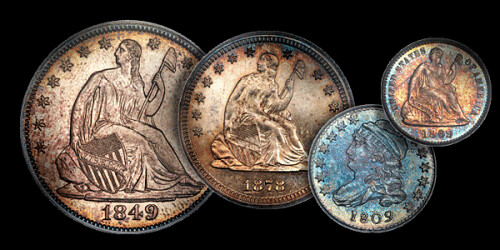
Indeed, Gardner was an extraordinarily determined collector, who built the all-time greatest collection of Liberty Seated coins and perhaps the best collection of Barber coins as well. Indisputably, Gene assembled the premier set of Barber quarters. I tentatively figure that Gardner formed the third all-time-best set of Barber halves.
Gardner’s incredible collection contained more than 3,000 coins, most of which were classic U.S. silver coins. His sets of large cents, Two Cent pieces, Indian cents, and nickels were impressive as well. Unlike most collectors with similar preferences and budgets, Gardner sought to complete sets of both Proofs and business strikes.
While being intensely focused upon obtaining a large number of choice rarities and completing sets, Gardner was always social and kind. In my conversations with him and in group conversations, he never lost his temper or became agitated. If he was bothered by a statement or a question, he would respond with polite sarcasm or by smoothly changing the topic.
Gene’s overall pleasantness and mild-mannered personality were distinctive and especially memorable.
Gardner began collecting coins as a kid in the 1940s. He just about filled the first Whitman folder for Lincoln cents by obtaining coins from change or asking merchants for “old pennies.” Starting in 1955 while he was in college, Gene devoted more funds to collecting and would frequently spend $10 to $25 per coin. Even then, he was attracted to gem-quality silver coins from the 19th century, his trademark over the years.
Gardner graduated from Harvard College in 1958, with a degree in economics. He earned his MBA at Harvard Business School, finishing in 1961.
To read the complete article, see:
A Most Distinguished
Gentleman: In Memoriam – Gene Gardner
(www.coinweek.com/people-in-the-news/in-memoriam/distinguished-gentleman-memoriam-gene-gardner/)
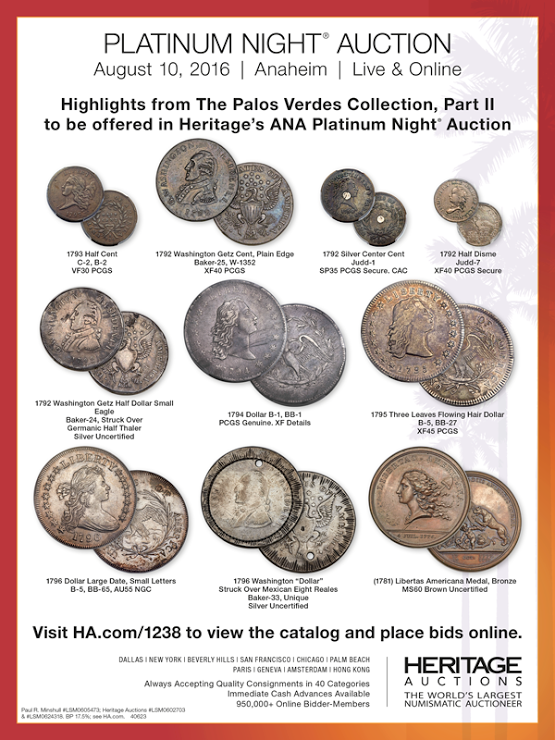
LOONIE DESIGNER ROBERT-RALPH CARMICHAEL, 1937 - 2016
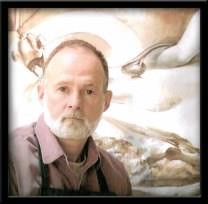 The man who created the design for Canada's loonie coin has died.
The man who created the design for Canada's loonie coin has died.
Artist Robert-Ralph Carmichael's image of a solitary loon was introduced in 1987, when Canada replaced its one dollar bill with a coin. It was "the most significant change to Canada's coinage system in over 50 years," the Royal Canadian Mint said.
"Since that time, Mr. Carmichael's design has appeared on over one billion one-dollar coins," the mint said in a statement. "We thank him for his remarkable contribution in creating what has become a true Canadian symbol."
Carmichael died Saturday at a hospice in Sault Ste. Marie, Ont. He was 78 years old.
He also produced designs for some of the mint's commemorative coins and created a loon stamp for Canada Post.
When the mint originally announced it would replace its one dollar bill with a coin as a cost-cutting measure, it was supposed to carry a version of a silver dollar from 1935 that was produced to mark the silver jubilee of King George V.
The silver dollar's design, which featured an aboriginal man and a voyageur paddling a canoe laden with packages, paid tribute to Canada's historical fur trade.
But when the mint decided to reproduce the design, the dies that would have been used to cast the new coins were lost in transit between Ottawa and the mint's production facility in Winnipeg.
Worried that counterfeit versions of the voyageur coin might surface, the mint selected a new design — Carmichael's image of a loon — and released the new dollar coins on June 30, 1987.
In 1992, Carmichael's hometown of Echo Bay, Ont., near Sault Ste. Marie, erected a giant Loonie monument in tribute to the artist's design.
To read the complete article, see:
Robert-Ralph Carmichael, creator
of loonie coin design, dies at 78 (http://cfjctoday.com/article/535467/robert-ralph-carmichael-creator-loonie-coin-design-dies-78)
To read the Carmichael's online obituary, see:
In
Memory of Robert (Bob) Carmichael December 20, 1937 - July 16, 2016
(http://obits.dignitymemorial.com/dignity-memorial/obituary.aspx?n=Robert+(Bob)-Carmichael&lc=3776&pid=180705369&mid=7012475)
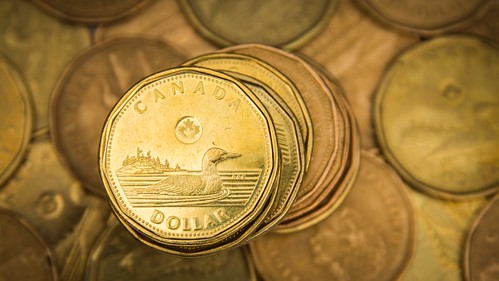
"Mr. Carmichael's loonie design has stood the test of time due to its simplicity in depicting an icon of Canadian wildlife," said a statement issued by the Royal Canadian Mint on Monday.
"The introduction of the one-dollar coin in 1987 was the most significant change to Canada's coinage system in over 50 years. We thank him for his remarkable contribution in creating what has become a true Canadian symbol."
Figures from the mint show that well over a billion loonie coins have been produced since 1987. Carmichael's initials appear near the bird's beak.
While the loonie was Carmichael's best known numismatic work, he designed more than a dozen other coins for the mint, including several gold and commemorative coins.
In a 2012 interview with the Sault Star, Carmichael said his design for the loonie was the first one the mint accepted after 10 years of submitting proposals.
"The loon dollar was the first, and I suppose the greatest," he told the newspaper.
"You couldn't ask for a better introduction to having your work produced as a coin than that one. Everything followed that."
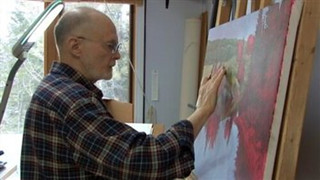 A monument to Carmichael's most famous work — a giant version of his loonie — was erected in his longtime home of Echo Bay, Ont., in
1992.
A monument to Carmichael's most famous work — a giant version of his loonie — was erected in his longtime home of Echo Bay, Ont., in
1992.
Carmichael was a successful artist who showed his drawings and paintings in dozens of group and solo exhibitions across Canada. His work is featured in the permanent collections of many art galleries and in many private collections.
To read the complete article, see:
Robert-Ralph Carmichael, artist behind
loonie coin, dies (www.cbc.ca/news/business/robert-ralph-carmichael-loonie-artist-dies-1.3683942)
When driving east from Sault Ste. Marie, Highway 638 offers a scenic alternative to the more heavily travelled Highway 17. Spanning 52 km from Echo Bay to Bruce Mines, this secondary highway meanders its way through varied terrain, offering a fresh view at every turn.
Heading east from Echo Bay, the highway is flanked by vistas of rocky ridges as it dips into the pastoral lowlands of Sylvan Valley before entering a forested stretch north of McCarrel Lake. From here, the road passes by a handful of small farms nestled between tree-covered hills as the route passes through the tiny settlement of Leeburn. The highway then veers south at its intersection with Poplar Dale Road, then passes through some rugged terrain as is skirts between Rock Lake and Dunns Valley. The road then flattens out as it passes through sprawling farmland near the small communities of Rydal Bank and Bruce Station, before finally reaching its terminus at its intersection with Highway 17 at Bruce Mines.
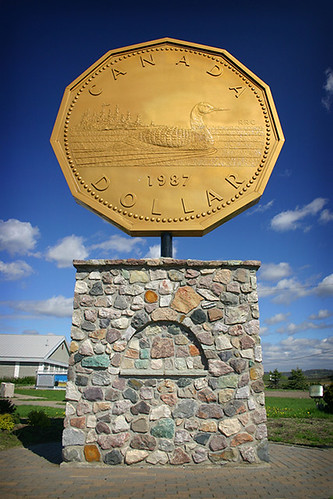
At the western terminus of Highway 638 lies the town of Echo Bay, which is home to the “Big Loonie.” Officially known as the Loon Dollar Monument, this roadside attraction was erected in 1992 in recognition of local resident Robert-Ralph Carmichael, who created the design for Canada’s one-dollar coin in 1987.
To read the complete article, see:
SEE THE SIGHTS ALONG HIGHWAY 638
(www.northernontario.travel/algoma-country/the-road-less-travelled-highway-638)
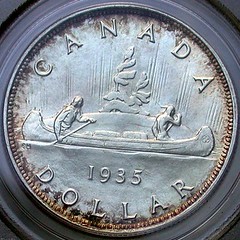 On the morning of Nov. 3, 1986, two freshly engraved master dies for Canada's new $1 coin were picked up by a courier service from the
Royal Canadian Mint on Sussex Drive for delivery to the mint's Winnipeg production plant. The mint planned to save $43.50 by sending the dies
through a local letter-courier firm instead of a high-security armoured service.
On the morning of Nov. 3, 1986, two freshly engraved master dies for Canada's new $1 coin were picked up by a courier service from the
Royal Canadian Mint on Sussex Drive for delivery to the mint's Winnipeg production plant. The mint planned to save $43.50 by sending the dies
through a local letter-courier firm instead of a high-security armoured service.
One die carried the image of the Queen and the other noted sculptor and artist Emanuel Hahn's iconic "voyageur canoe" scene that had graced Canada's first silver dollar and other coins since 1935.
The plan was to introduce a new bronze-coloured voyageur canoe dollar coin in early 1987 and begin a two-year phase-out of the old green-and-white $1 bill.
But 11 days later, on Nov. 14, distressed mint officials in Winnipeg called in the Mounties -- the two steel dies had never arrived from Ottawa.
To read the earlier E-Sylum article, see:
THE CASE OF THE LOST VOYAGEUR: CANADA'S MISSING DOLLAR DIES
(www.coinbooks.org/esylum_v11n46a25.html)

ALBERT HARLAN POMEROY (1852-1926)
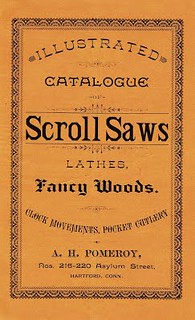 Albert Harlan Pomeroy was born on March 21, 1852, son of Lorenzo Harlan Pomeroy (1821-) and Susan C. Pomeroy, both natives of
Massachusetts. He was married on June 6, 1883 to Emma E. Winnel (1856-1935) at Amherst, Connecticut. They had three children Laura (1886-1912),
Harlan Dickinson (1897-1972), and Raymund Williams (1895-1915).
Albert Harlan Pomeroy was born on March 21, 1852, son of Lorenzo Harlan Pomeroy (1821-) and Susan C. Pomeroy, both natives of
Massachusetts. He was married on June 6, 1883 to Emma E. Winnel (1856-1935) at Amherst, Connecticut. They had three children Laura (1886-1912),
Harlan Dickinson (1897-1972), and Raymund Williams (1895-1915).
In the field of American numismatic history Pomeroy is somewhat of a non entity and an enigma. He was a machinst that manufactured scroll saws, and templates for scroll saws. He published catalogues selling these items. However, he also sold pocket knives, bicycles, curios, coins, and stamps all in the same catalogue. His business envelopes advertised scroll saw materials, stamps and coins. No record of him is found in the mainstream of numismatic literature.
For the Numismatic Bibliomania Society members there is one outstanding consolation his office was on Asylum Street, Hartford, Connecticut. Pomeroy seems to have operated a store very similar to Farran Zerbe about the same time, but in Hartford, Connecticut. Unlike Zerbe, Pomeroy, though he did sell stamps and coins, never established a name in the field of numismatics. There may exist some evidence of his coin lists and the assortment of numismatic items he carried. Any information about his coin dealing business would be greatly appreciated.
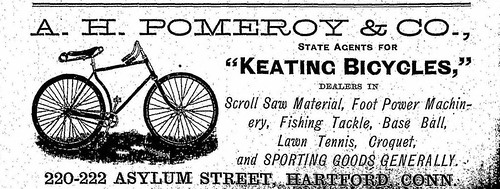
To read the complete article, see:
POMEROY, ALBERT HARLAN
(https://sites.google.com/a/numismaticmall.com/www/numismaticmall-com/pomeroy-albert-harlan)
THE BOOK BAZARRE
THE ORIGINAL MOTTO PROJECT OVERSTAMP
Loren Gatch writes:
Apropos currency stamping, there is also a new group, The Original Motto Project, that wants to "stamp out" In God We Trust on bills. Not endorsing it, just reporting!
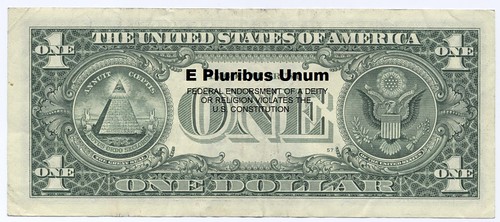
For more information, see:
Tired of In God We Trust on your money? Get a Bill Stamp today!
(http://originalmotto.us/bill-stamp/)
To read the earlier E-Sylum article, see:
'SPENT BY LAWFUL GUN OWNER' OVERSTAMP
(www.coinbooks.org/esylum_v19n28a19.html)
ORDERS & MEDALS SOCIETY TO MEET IN PITTSBURGH
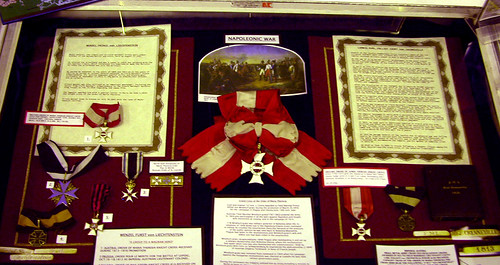
The annual convention of the Orders & Medals Society of America is coming to Pittsburgh, Pennsylvania in about five weeks time. Commonly known as OMSA, members of the numismatic/ faleristic specialty group collect, research and preserve award medals of all kinds, military and civilian, including Orders of Knighthood, decorations for bravery and medals for various types of service, the vast majority being award medals of the portable variety, that is, medals meant to be worn by the recipient. Related books on Orders, Decorations & Medals (ODMs) and the circumstances surrounding their award are also an important part of the hobby and are well represented at the convention. OMSA’s annual meeting moves around the country and is sponsored by local medal collectors.
Highlights include a special exhibit in cooperation with The Soldiers & Sailors Museum, featuring a Medal of Honor to a soldier killed at D-Day, June 6th, 1944, see www.soldiersandsailorshall.org.
The OMSA convention may be unique among specialist collector conclaves insofar as it is a collector financed affair, the costs of the convention being paid by registered attendees, rather than bourse table holders, the latter method most common in the numismatic community. OMSA attendees pay a registration fee, this year $190. For that amount, they have access to the convention floor for the four-day bourse and exhibits, two days of seminars on faleristic topics, a donation auction, several meals and cocktail parties, including a lavish annual banquet.
As members subsidize the event, inexpensive bourse tables are available to any OMSA member registrant at only $65 (compare that to the cost of an ANA or commercial show table!), enabling members of all means to participate as a seller. The convention will be held at the Wyndham Grand Hotel, 600 Commonwealth Place, Pittsburgh, PA 15222, (412) 391-4600, from August 11 through 14, 2016 for OMSA member registrants.
The convention bourse floor and always fascinating exhibits will also be open to non-registered OMSA members and the general public but only on one day, Saturday, August 13, 2016 from 9am to 5pm, for a $6 admission fee. Those presently, or potentially, interested in learning about medal collecting are enthusiastically invited. For more information about OMSA, see www.omsa.org. Those wanting more information about attending this year's convention of the Orders & Medals Society of America, should email OMSA2016@medalnet.net.

RECENT COINWEEK VIDEOS AND PODCASTS
Preservation Techniques for Copper Coins
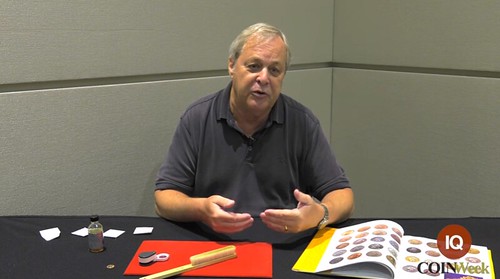
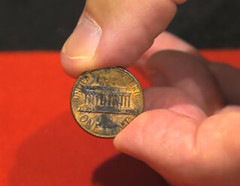
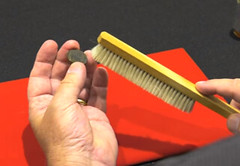
Bill Eckberg walks viewers through the steps for properly cleaning copper coins.
To watch the complete video, see:
CoinWeek IQ: Proper Preservation Techniques for Copper Coins - 4K Video
(www.youtube.com/watch?v=U4PVFXM2atw)
Podcast #37: UnCut Funk: African-American Representation and Money
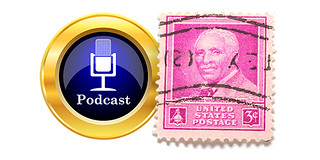
Pamela Thomas and Loreen Williamson are co-curators and owners of the Museum of UnCut Funk, the internet’s first virtual museum dedicated to the preservation and celebration of 1970s black culture and all things funky. Drawing from Thomas’ and Williamson’s own personal collections, the Museum provides enthusiasts with a unique and exciting view of art and artifacts from this exciting period in American life. One of the museum’s holdings is a collection of U.S. coins and medals depicting African-American subjects, such as Booker T. Washington, George Washington Carver, and Marian Anderson.
In this episode of the CoinWeek Podcast, Charles Morgan talks with Pamela and Loreen about coins, the importance of African-American representation on money, the forthcoming Harriet Tubman Federal Reserve Note, the 2017 American Liberty High Relief gold coin, and who the two would like to see honored on a future coin or medal.
It’s an interesting and lively discussion that illustrates the vitality of numismatics in American life and how we are living in historic times.
To listen to the podcast, see:
CoinWeek Podcast #37: UnCut Funk:
African-American Representation and Money (www.coinweek.com/coinweek-podcast/podcast-37-african-american-representation-and-money/)
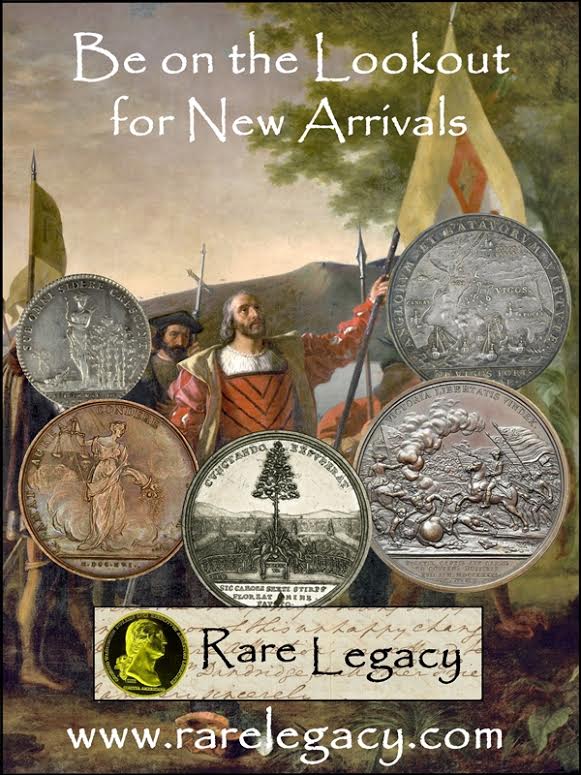
MEET JOHN MERCANTI AND ED MOY AT ANA SHOW
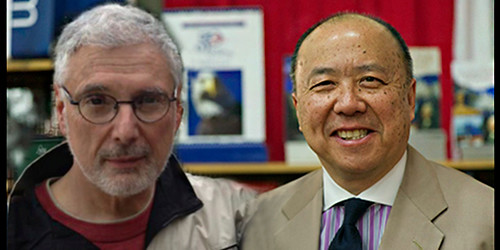
John Mercanti and Ed Moy
Numismatic Guaranty Corporation® (NGC®) has announced that visitors to the ANA World’s Fair of Money in August will have the opportunity to meet John M. Mercanti, the 12th US Mint Chief Engraver, and Edmund C. Moy, the 38th US Mint Director, at its booth during select times. Mercanti and Moy will also sign a limited number of portraits that will be given away for free to visitors.
The two notable hobby figures will be at booths 924 and 926 at the ANA World’s Fair of Money in Anaheim, California, at the following times:
Wednesday, August 10, from 2:00 pm to 4:00 pm
Thursday, August 11, from 10:00 am to 12:00 pm
Friday, August 12, from 2:00 pm to 4:00 pm
Saturday, August 13, from 10:00 am to 12:00 pm
They will sign up to 250 glossy 8.5” x 11” portraits during each time slot, which will be given away on a first-come, first-served basis.
Mercanti and Moy have had an extraordinary impact on modern coins and the collecting hobby. During his 36-year tenure at the US Mint, Mercanti designed well over 100 coins and medals—more than any other employee in US Mint history. The coins designed by Mercanti include many of the most popular US modern coins.
Most notably, Mercanti designed the reverse of the American Silver Eagle, which is considered to be the world’s most widely collected silver coin today. He also designed the obverse of the American Platinum Eagle, numerous commemoratives and several state quarters.
After his retirement from the US Mint in 2010, Mercanti remained active in numismatics. In 2014 he created an Australian Wedge-Tailed Eagle design for the Perth Mint, which is now used for an annually issued series of silver and gold coins. He also wrote American Silver Eagles, A Guide to the U.S. Bullion Coin Program with Michael “Miles” Standish, an NGC vice president.
Moy led the US Mint at a time when modern coin collecting began to dramatically increase in popularity due, in large part, to the exciting new programs introduced under Moy’s leadership. His term started just as the Mint was releasing the 20th Anniversary Silver and Gold Eagles, which included the first Reverse Proofs ever struck by the US Mint.
The success of this program promoted the US Mint to experiment with other new concepts and types. Moy is particularly proud of the 2009 Ultra High Relief $20, which featured Augustus Saint-Gaudens’ original design for his Double Eagle. The coin was an immediate success and continues to be highly desired by collectors.
Moy also oversaw the launch of the Presidential Dollar program in 2007 and the America the Beautiful Quarters program in 2009 as well as completion of the monumental 50 State Quarters program. After his retirement in 2011, Moy remained involved in numismatics and in 2013 he wrote the reference book American Gold and Platinum Eagles.
Mercanti and Moy entered into exclusive agreements with NGC in late 2015 to individually hand-sign NGC certification labels. These unique labels enhance the presentation of modern coins with a personal touch from important historical figures.
To read the complete article, see:
NGC:
Free Mercanti & Moy Signed Portraits at Anaheim ANA Show
(www.coinweek.com/dealers-companies/ngc-dealers-companies/ngc-free-mercanti-moy-signed-portraits-anaheim-ana-show/)
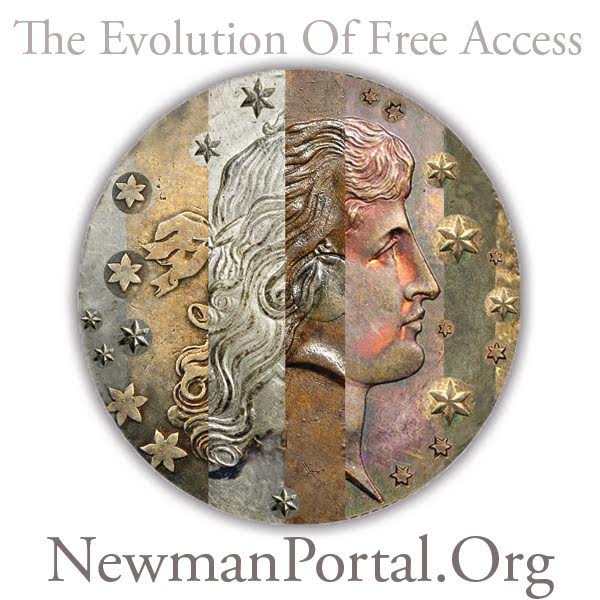
SELECTIONS FROM HERITAGE 2016 ANA SALE
Lot 3937: 1796 Washington Dollar
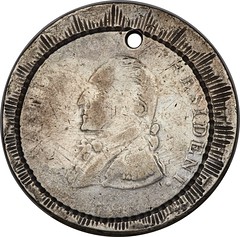
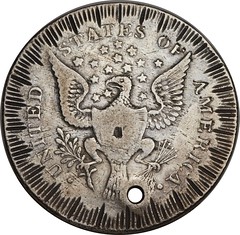
The Unique 1796 Washington Dollar, VG Details Struck Over Mexican 8 Reales
Baker-33, Plated in Snowden, 1861
1796 MEDAL Washington "Dollar," Baker-33, Unique, Silver -- Damaged, Holed -- NGC Details. VG. 361.1 grains, 39.0 x 39.2 mm, specific gravity 10.4. Believed unique, this dollar-sized piece is struck over a Spanish 8 reales, likely from the Mexico City Mint. When James Ross Snowden published The Medallic Memorials of Washington in the Mint of the United States in 1861, he illustrated this piece on Plate XI. The Snowden plate shows the hole in exactly the same position, proving that this is the same piece. A little over a quarter century later, W.S. Baker described the piece in Medallic Portraits of Washington as his number 33. Baker noted that H. Drumheller of Schuylkill County, Pennsylvania was the owner of the piece in 1861, and that it was on loan to the Mint. Henry Drumheller was a merchant in North Mannheim, Schuylkill County, Pennsylvania in 1860. He was born in Pennsylvania about 1813.
Although dated 1796, the obverse is virtually identical to the 1792 Washington President pieces by Peter Getz, using the same device punch for the uniformed George Washington, and the reverse is from the identical die that Getz used for his 1792 Washington pieces. The specific gravity of 10.4 approximates .950 fine silver. We believe that the obverse and reverse of the pillar dollar were planed down before this example was struck, although traces of undertype are still visible, especially at CA of AMERICA. The ornamental squares and circles edge is still clearly visible around most of the circumference. The obverse and reverse have borders of rays that were hand punched after this piece was struck. The scalloped circle on the obverse, also hand punched, marks the edge of the die.
George Fuld and Eric P. Newman studied this piece at length in 1961, and they came to the conclusion that it is a medal, calling it a "development piece" that Getz used during the production of 1797 Masonic medals that also featured the likeness of George Washington. For their detailed report, see "Rediscovery of the 1796 Washington President Piece" in the April 1961 issue of The Colonial Newsletter.
To read the complete lot description, see:
1796
MEDAL Washington "Dollar," Baker-33, Unique, Silver -- Damaged, Holed -- NGC Details. VG. ...
(http://coins.ha.com/itm/colonials/1796-medal-washington-dollar-baker-33-unique-silver-damaged-holed-ngc-details-vg/a/1238-3937.s)
Lot 3935: 1792 CENT Washington Getz President Pattern Cent, Plain Edge
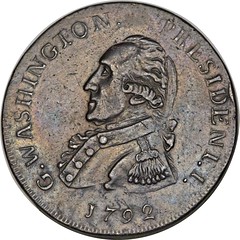
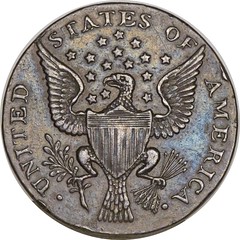
1792 CENT Washington Getz President Pattern Cent, Plain Edge, XF45 NGC. Baker-25, Breen-1352, Pollock-5020, W-10775, R.5. 257.7 grains, 33.2 mm. Just over 50 of these survive in copper from an unknown production that some numismatists estimate at 100 pieces. Peter Getz of Lancaster, Pennsylvania, just 23 years old at the time, "is said to have aspired to the position of Mint engraver" according to George Fuld in The Washington Pattern Coinage of Peter Getz. His design closely followed the language of a coinage bill that Robert Morris introduced to Congress on December 21, 1791. Meanwhile, Getz became a successful goldsmith and jeweler who operated a business on Queen Street, "opposite Mr. Slough's tavern" according to a contemporary advertisement. He died at the age of 36 in 1804.
To read the complete lot description, see:
1792 CENT Washington Getz President Pattern Cent, Plain Edge, XF45 NGC. Baker-25, Breen-1352, Pollock-5020, W-10775, R.5. ...
(http://coins.ha.com/itm/colonials/1792-cent-washington-getz-president-pattern-cent-plain-edge-xf45-ngc-baker-25-breen-1352-pollock-5020-w-10775-r5/a/1238-3935.s)
Lot 3939: Libertas Americana Medal
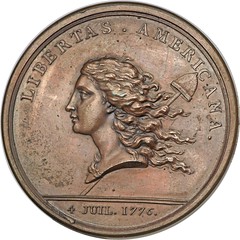
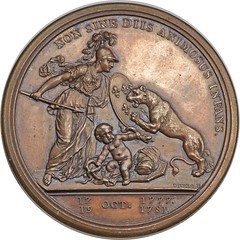
(1781) Libertas Americana Medal, Bronze, MS63 Brown NGC. Betts-615, Loubat-14. Augustin Dupre was arguably the best die engraver of the 18th century, certainly in France where these pieces were struck, and possibly anywhere in the world at the time. Designed after the concept of Benjamin Franklin, the beauty of this medal is equaled by its numismatic and historical importance. The Libertas Americana medal is considered one of the greatest medals ever produced, and it holds the number one position in 100 Greatest American Medals and Tokens, by Katherine Jaeger and Q. David Bowers. This spectacular example features chestnut and golden-brown surfaces with fully reflective fields and bold design elements. Delicate blue overtones complete the picture of a spectacular French medal telling the history of America.
To read the complete lot description, see:
(1781)
Libertas Americana Medal, Bronze, MS63 Brown NGC. Betts-615, Loubat-14....
(http://coins.ha.com/itm/colonials/-1781-libertas-americana-medal-bronze-ms63-brown-ngc-betts-615-loubat-14/a/1238-3939.s)
Lot 3951: 1792 Silver Center Cent
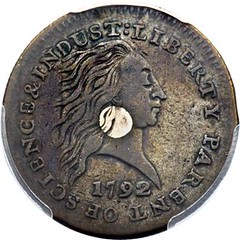
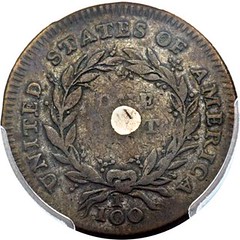
1792 Silver Center Cent, Judd-1, SP35
First Coin Struck Inside the U.S. Mint
1792 P1C One Cent, Judd-1, Pollock-1, High R.6 SP35 PCGS Secure. CAC. The Silver Center cent is one of the most famous and iconic issues of American coinage. Most numismatists believe it was the first coin actually produced inside the walls of the first U.S. Mint, although a few other patterns were struck earlier, before the Mint was actually ready for coinage operations. Its historic importance can scarcely be overstated and examples have been prized by collectors since the earliest days of the hobby.
The Present Coin
The coin offered here is a fairly recent discovery, found in a pub in the 1960s. The first owner of record was named Nigel Willmott and it
has one previous auction appearance in a Glendining's sale in 1997, where it brought 28,750 British pounds. It passed through a number
of well-known American numismatists and coin dealers, including Kenneth Goldman, Stuart Levine, and Anthony Terranova, before finding a
home with prominent collector Martin Oghigian. This piece has been in Oghigian's estate since his death in 1998.
To read the complete lot description, see:
1792 P1C One
Cent, Judd-1, Pollock-1, High R.6 SP35 PCGS Secure. CAC....
(http://coins.ha.com/itm/large-cents/1792-p1c-one-cent-judd-1-pollock-1-high-r6-sp35-pcgs-secure-cac/a/1238-3951.s)
To read the earlier E-Sylum article, see:
THE WILLMOTT-OGHIGIAN 1792 SILVER CENTER CENT
(www.coinbooks.org/esylum_v19n27a18.html)
Lot 3992: 1792 Half Disme
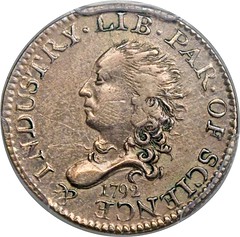
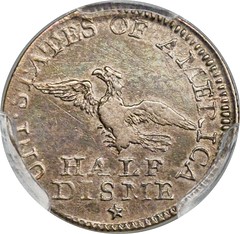
1792 H10C Half Disme, Judd-7, Pollock-7, R.4 XF40 PCGS Secure. More than 200 years of legend and myth surround the striking of the 1792 half dismes. A great deal of embellishment and outright fabrication seem to have been attached to these coins in the 1850s and 1860s. More than likely the greatest perpetuator of these legends and myths was Mint Director James Ross Snowden. Two of the more fanciful and widely held beliefs are that Martha Washington was the model for Liberty and the coins were struck from George and Martha Washington's silver tableware.
In 2003, Joel Orosz and Carl Herkowitz separated much of the fact from fantasy regarding these coins in a well-researched article in the ANS' American Journal of Numismatics. Much of what we know today was based on an obscure tipped-in note found in a European coin book in 1943. The signature was faded, but the authors identified the author as John McAllister, Jr. McAllister was a close friend of Adam Eckfeldt, a primary source for the half dismes, as he was present at their striking. The note read:
"In conversation with Mr. Adam Eckfeldt (Apr 9, 1844) at the Mint, he informed me that the Half Dismes above described, were struck, expressly for Gen. Washington, to the extent of One Hundred Dollars, which sum he deposited in Bullion or Coin, for the purpose. Mr. E. thinks that Gen. W. distributed them as presents. Some were sent to Europe, but the greater number, he believes, were given to friends of Gen. W. in Virginia. No more of them were ever coined. They were never designed as Currency. The Mint was not, at the time, fully ready for being put into operation. The Coining Machinery was in the cellar of Mr. Harper, saw maker, at the corner of Cherry and 6th Sts, at which place these pieces were struck."
While half dismes were struck for "friends of Gen. W. in Virginia" many of them were used as currency at the time. This is obviously one of them.
To read the complete lot description, see:
1792 H10C Half
Disme, Judd-7, Pollock-7, R.4 XF40 PCGS Secure....
(http://coins.ha.com/itm/early-half-dimes/1792-h10c-half-disme-judd-7-pollock-7-r4-xf40-pcgs-secure/a/1238-3992.s)
Lot 4157: 1795 Flowing Hair Dollar
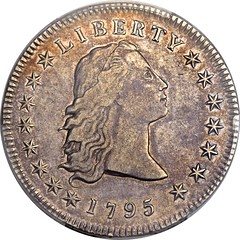
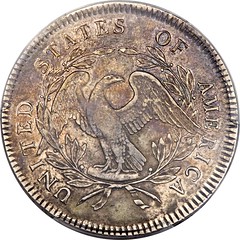
1795 $1 Flowing Hair, Three Leaves, B-5, BB-27, R.1, XF45 PCGS. The Flowing Hair silver dollar was struck for only two years, and since the 1794 is a costly rarity, most early type collectors instead select a 1795 example. Bolender-5 is easily attributed by the slender "bar" behind the highest neck curl, and represents the type in more holdings than any other Flowing Hair variety.
To read the complete lot description, see:
1795 $1 Flowing Hair,
Three Leaves, B-5, BB-27, R.1, XF45 PCGS....
(http://coins.ha.com/itm/early-dollars/1795-1-flowing-hair-three-leaves-b-5-bb-27-r1-xf45-pcgs/a/1238-4157.s)
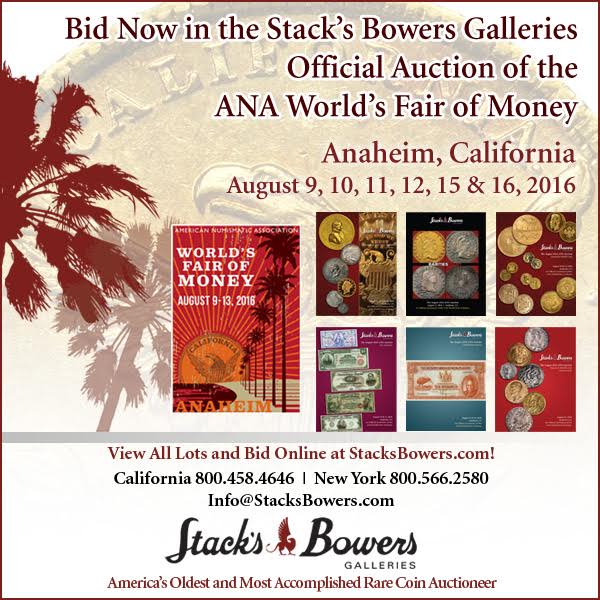
STACKS-BOWERS 2016 ANA SALE SELECTIONS
Lot 1101: 1946 United Nations Monetary Patterns
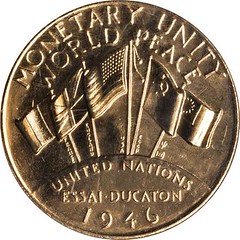
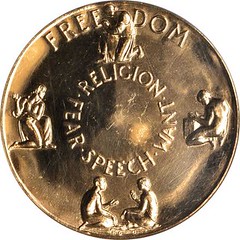
1946 United Nations Monetary Patterns. Three-Piece Set. 37 mm. MS-63 (NGC).
This is a set of the three standard issues, all examples of which are housed together in a single large size NGC holder. Included are: silver, HK-871, Rarity-5; bronze, HK-872, Rarity-4; and gold, HK-873, Rarity-6. The original mintages of these three different metallic compositions is 750, 250 and 314 pieces, respectively. Issued under the guidance of prominent numismatists Hans Schulman and Abe Kosoff as a proposition for a worldwide currency under the jurisdiction of the then new United Nations. The idea was unworkable at the time, but remnants of the concept exist today in the Euro, currently in use by at least a portion of the world. (Total: 3 items)
To read the complete lot description, see:
1946 United Nations Monetary Patterns. Three-Piece Set. 37 mm. MS-63
(NGC). (https://auctions.stacksbowers.com/lots/view/3-5132G)
Lot 1106: 1917 Distinguished Service Medal
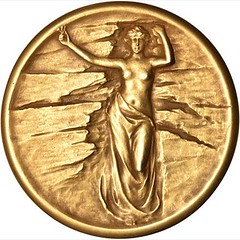
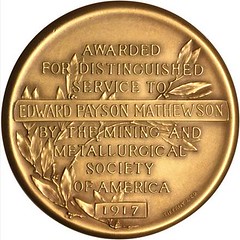
Rare Gold 1917 Distinguished Service Medal
Mining and Metallurgical Society of America
By Tiffany & Company
1917 Award for Distinguished Service by the Mining and Metallurgical Society of America. Marked as 18K. By Tiffany and Company. Awarded to Edward Payson Mathewson. 50.6 mm. 119.4 grams. Choice Mint State.
Housed in the original green leather clad case of issue with the name of the recipient on the cover in gilt, and the imprint of Tiffany & Co inside the front cover. Beautifully styled with a fine matte finish that was popular on medallic art in this period. A rare and very attractive medal from the workshops of Tiffany. The Distinguished Service award was first given in 1914 and most recently in 2015, but many years were skipped. According to the website of the Society, the award has been presented only 35 times, making this a rather rare one. Mathewson received this one for "art of non-ferrous metallurgy."
To read the complete lot description, see:
1917 Award for Distinguished Service by the Mining and Metallurgical Society
of America. Marked as 18K. By Tiffany and Company. Awarded ... (https://auctions.stacksbowers.com/lots/view/3-515TH)
Lot 1108: 1962 Department of the Interior Distinguished Service Medal
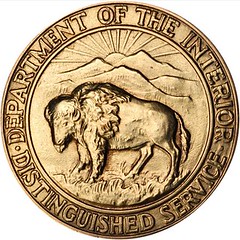
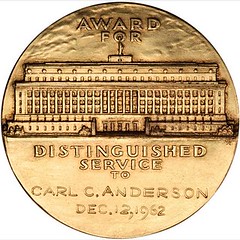
Scarce 1962 Department of the Interior Gold Medal For Distinguished Service
1962 Department of the Interior Distinguished Service medal. Gold. Tested as 16.4K. By Gilroy Roberts. Awarded to Carl C. Anderson, and inscribed to him in the reverse exergue. 39.6 mm. 53.5 grams. Choice Mint State.
Housed in the original blue case of issue. A light colored gold alloy and not marked as to fineness, but these have been catalogued as 14K in the past by Joe Levine in his Presidential Coin and Antique sales so presumably others have been tested as such or literature exists pinpointing this as the believe composition. Double struck in the collar, with a small rotation between impressions, the effects of which are seen most prominently in the letters of the legend. An attractive design with a prominent North American Bison as the central motif of the Department of the Interior seal, which is the obverse design. Carl C. Anderson was Chief of the Division of Petroleum as of early 1962, and was awarded the medal on December 12, 1962.
To read the complete lot description, see:
1962 Department of the Interior Distinguished Service medal. Gold. Tested as
16.4K. By Gilroy Roberts. Awarded to Carl C. Anderson, and ... (https://auctions.stacksbowers.com/lots/view/3-515UG)
Lot 1164: 1786 Vermont Copper. Landscape.
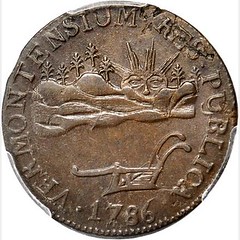
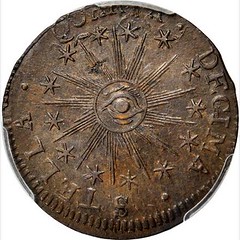
Magnificent 1786 RR-6 Vermont Copper
The 1914 ANS Exhibition Plate Coin
1786 Vermont Copper. Landscape. RR-6, Bressett 4-D, W-2020. Rarity-3. VERMONTENSIUM. MS-63 BN (PCGS).
PCGS# 545. NGC ID: 2B57.
Ex S.H. & H. Chapman's sale of the Harlan P. Smith Collection, May 1906, lot 82; Hillyer C. Ryder; F.C.C. Boyd; our (Stack's)
sale of the John J. Ford, Jr. Collection, Part I, October 2003, lot 19.
To read the complete lot description, see:
1786 Vermont Copper. Landscape. RR-6, Bressett 4-D, W-2020. Rarity-3.
VERMONTENSIUM. MS-63 BN (PCGS). (https://auctions.stacksbowers.com/lots/view/3-513L2)
Lot 2563: DuPont Pattern Quarter
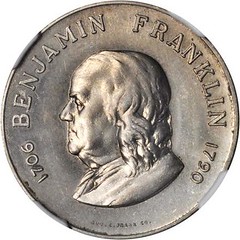
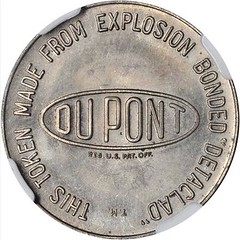
Undated (Circa 1964) DuPont Pattern Quarter. Judd-Unlisted, Pollock-5391. Rarity-2. Nickel Alloy bonded to a Copper Core. Plain Edge. MS-63 (NGC).
Obv: Profile of Benjamin Franklin facing left with 1706 BENJAMIN FRANKLIN 1790 around. The reverse has the name DU PONT within an oval cartouche with the inscription THIS TOKEN IS MADE FROM EXPLOSION BONDED "DETACLAD." Light champagne drapes the reflective silvery surfaces across each side of this attractive specimen. These pieces were struck by the firm of August C. Frank in Philadelphia for Du Pont as a way of showcasing the latter's experimental planchet material Detaclad. Using explosive force, Du Pont was able to bond a 25% nickel/75% copper alloy to a copper core, inspired by the way shrapnel is welded to armor plating after an explosion.
To read the complete lot description, see:
Undated (Circa 1964) DuPont Pattern Quarter. Judd-Unlisted, Pollock-5391.
Rarity-2. Nickel Alloy bonded to a Copper Core. Plain Edge. MS... (https://auctions.stacksbowers.com/lots/view/3-519PH)
Lot 2566: 1987 Zinkann Pattern Half Eagle
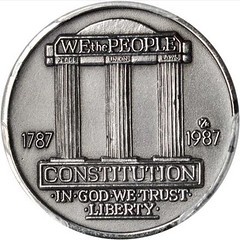
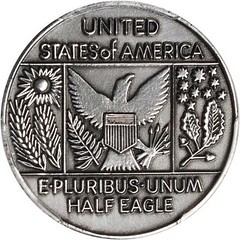
1987 Zinkann Pattern Half Eagle. Judd-Unlisted, Pollock-5460. Rarity-7. .999 Fine Silver. Plain Edge. Antiqued Finish. MS-64 (PCGS).
Obv: A motif consisting of three fluted columns surmounted by an entablature. The words PEACE, UNION, and LAWS are expressed on the capitals of columns, and the motto "WE the PEOPLE: is present on the entablature. The dates 1787 and 1987 are in the left and right fields respectively. The base of the central motif is the word constitution, and in exergue is the word LIBERTY. Rev: The separate motifs in individual panels. In the left panel are two ears of grain with the radiant sun above. The central panel features an eagle with spread wings holding on olive branch and arrows. The right panel depicts an oak sprig with a constellation of stars. Above the design panel is the legend UNITED STATES OF AMERICA. Below is the motto E PLURIBUS UNUM and the denomination HALF EAGLE. An appealing piece showcasing a bright silver complexion across fields with a sandblast-like texture. The surfaces are nice under scrutiny and exhibit the characteristic shadowed devices of an antiqued finish. These pieces were issued by Frank Zinkann of Montgomery, Ill. as a proposal for the 1987 Constitution Bicentennial $5 coin. Struck by Pressed Metal Products of Vancouver, British Columbia, specimens were minted in gold, hafnium, silver and tungsten; the last of which is offered in the proceeding lot.
To read the complete lot description, see:
1987 Zinkann Pattern Half Eagle. Judd-Unlisted, Pollock-5460. Rarity-7. .999
Fine Silver. Plain Edge. Antiqued Finish. MS-64 (PCGS). (https://auctions.stacksbowers.com/lots/view/3-518FT)

STACKS-BOWERS 2016 ANA RARITIES SALE SELECTIONS
Lot 3004: 1766 Pitt Farthing
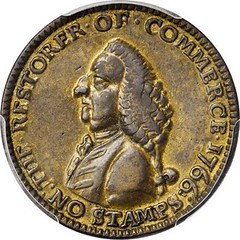
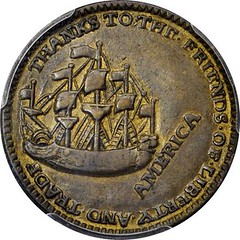
Finest Known 1766 Pitt Farthing
The Roper Specimen
1766 Pitt Farthing Token. Betts-520, W-8345. Brass. AU-55 (PCGS).
The French and Indian Wars of the 1750s took a huge toll on British finances, compelling Parliament to find new and creative ways to generate revenue to counteract the expenses incurred. One such proposal came to fruition in March 1765 with the passage of the Stamp Act, imposing tariffs on paper intended for use in the colonies and requiring the use of an embossed stamp. The colonists had no say in the law and vehemently opposed it from the beginning. The colonists found an ally in William Pitt, who worked diligently against the Act, finally succeeding in its repeal on March 11, 1766. The controversies surrounding the Stamp Act's passage and eventual revocation gave birth to the concept and expression of "no taxation without representation," a phrase that remains in common parlance, in particular on the current license plates for the District of Columbia.
Precisely who authorized and struck the 1766 Pitt farthing and halfpenny tokens is not known. The traditional attribution for the pieces is based on the observations of by Montroville Dickeson in 1859 claiming that Philadelphia gunsmith and engraver James Smither produced them at the request of "The Friends of Liberty and Trade." Struck in two sizes, a farthing size, as here, and a halfpenny size, both bear the inscription THE RESTORER OF COMMERCE 1766 and NO STAMPS surrounding a bust of Pitt on the obverse, and on the reverse a ship at full sail, AMERICA in front of the ship's bow, all surrounded by THANKS TO THE FRIENDS OF LIBERTY AND TRADE.
Given the nature of the inscriptions and the quality of workmanship, it is very possible that the pieces were struck in England at the behest of the merchant groups who supported Pitt. While usually called halfpennies and farthings, the weights fall far below Royal standard, were not proportional to each other and were likely not intended as such. Despite this, most known specimens are found heavily worn and likely saw some circulation at a time when coppers of any sort were in high demand. A few examples have been recovered by metal detectorists in America but it remains unknown if there were any large importations of the pieces.
The farthing token is far and away rarer than its larger sibling and is missing in even the notable collections of colonial coins and related tokens. The offered piece is by far the finest known of the Betts-520 Pitt farthings and is tied with a "silvered" brass farthing; the next highest examples on the Condition Census are AU pieces noted with environmental damage.
To read the complete lot description, see:
1766 Pitt Farthing Token. Betts-520, W-8345. Brass.
(https://auctions.stacksbowers.com/lots/view/3-52FBS)
Lot 3169: 1851 Liberty Seated Silver Dollar Restrike
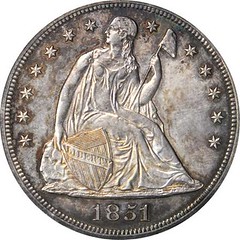
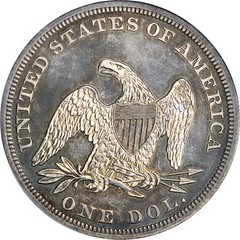
Unique "1851-O" Proof Liberty Seated Dollar 1851 Restrike on a New Orleans Mint Host Coin
1851 Liberty Seated Silver Dollar. Restrike--Overstruck on a New Orleans Mint Liberty Seated Silver Dollar--Proof-62 (PCGS). CAC.
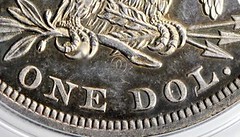 Here is a lovely and highly significant coin that ranks among the most important offerings in this sale. It is a Philadelphia Mint restrike
Proof 1851 Liberty Seated silver dollar overstruck on a New Orleans Mint host coin -- popularly referred to as the "1851-O" silver dollar.
The obverse shows the distinctive centered date of the restrike Proof 1851 dollar, while the reverse displays a somewhat flattened, yet still boldly
visible O mintmark of the New Orleans Mint. No silver dollars were struck at New Orleans in 1851, nor did the facility produce Proof Liberty Seated
dollars of any date, leading researchers to conclude that the host coin began as a circulation strike 1859-O or 1860-O silver dollar. It was then
selected by personnel at the Philadelphia Mint as a host coin for a restrike Proof 1851 silver dollar, produced beginning in the spring of 1859, and
almost certainly under the authority of Mint Director James Ross Snowden.
Here is a lovely and highly significant coin that ranks among the most important offerings in this sale. It is a Philadelphia Mint restrike
Proof 1851 Liberty Seated silver dollar overstruck on a New Orleans Mint host coin -- popularly referred to as the "1851-O" silver dollar.
The obverse shows the distinctive centered date of the restrike Proof 1851 dollar, while the reverse displays a somewhat flattened, yet still boldly
visible O mintmark of the New Orleans Mint. No silver dollars were struck at New Orleans in 1851, nor did the facility produce Proof Liberty Seated
dollars of any date, leading researchers to conclude that the host coin began as a circulation strike 1859-O or 1860-O silver dollar. It was then
selected by personnel at the Philadelphia Mint as a host coin for a restrike Proof 1851 silver dollar, produced beginning in the spring of 1859, and
almost certainly under the authority of Mint Director James Ross Snowden.
The rarity of the circulation strike 1851 silver dollar (see below) and the absence of original Proofs from that year made this a prime candidate for restriking. These restrikes were quickly recognized as rarities once numismatics as a hobby began to flourish in the United States during the late 1850s. This is an unofficial restrike for, while it was produced under Snowden's authority alongside similar pieces, striking was conducted in secret and sales went through Mint officials and employees rather than through official government channels. Even so, today's collectors can be thankful for this extensive manufacturing activity, as otherwise many important rarities from the earliest decades of U.S. Mint operations would be unobtainable.
Writing in the 1993 reference Silver Dollars & Trade Dollars of the United States: A Complete Encyclopedia, Q. David Bowers estimates that 50 to 100 restrike Proof 1851 silver dollars were produced beginning in 1859.
To read the complete lot description, see:
1851 Liberty Seated Silver Dollar. Restrike--Overstruck on a New Orleans Mint
Liberty Seated Silver Dollar (https://auctions.stacksbowers.com/lots/view/3-52AUR)
Lot 3292: The Byron Reed 1838 Eagle
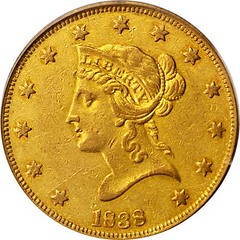
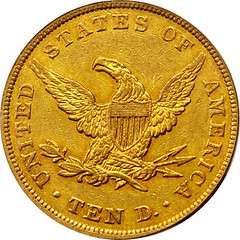
The Byron Reed 1838 Eagle
1838 Liberty Eagle. AU-50 (PCGS).
In 1804 President Thomas Jefferson suspended both silver dollar and ten-dollar gold eagle production to prevent the loss to domestic commerce of newly minted coins through exportation and/or melting. By that time such practices had become so profitable that there was little point in the Mint continuing to produce new coins. When coinage of gold eagles finally resumed in 1838, not only was a new design introduced, but both the weight and diameter of the eagle were reduced. Whereas the Capped Bust Right eagle of 1795 to 1804 was produced to a weight standard of 17.50 grams with an approximate diameter of 33 millimeters, the coins struck beginning in 1838 weigh 16.718 grams and measure 27 millimeters in diameter.
The design of the new eagle is attributed to Christian Gobrecht; its numismatic name, Liberty (Head), is derived from the left facing portrait that serves as the focal device on the obverse. As originally designed, Gobrecht's Liberty eagle features an obverse portrait with a broad, deeply curved truncation line and long strands of hair pulled across Liberty's ear from the temple to the bun at the back of the head. As well, the letters in the reverse legend UNITED STATES OF AMERICA are large in size. For reasons that have become lost to history, this design was deemed unacceptable for long-term coinage and was replaced in 1839 with one that features a slightly modified obverse portrait and smaller letters in the reverse legend. Examples of both types were produced in 1839.
From Spink America's sale of the Byron Reed Collection, October 1996, lot 155; Heritage's FUN Signature Auction of January 2008, lot 3260.
To read the complete lot description, see:
1838 Liberty Eagle. AU-50 (PCGS).
(https://auctions.stacksbowers.com/lots/view/3-52CQY)
Lot 3525: 1868 Pattern Half Eagle. Judd-656
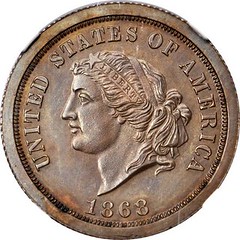
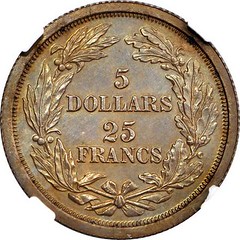
Intriguing 1868 Dual Denomination Pattern
1868 Pattern Half Eagle. Judd-656, Pollock-729. Rarity-7-. Copper. Reeded Edge. Proof-66 BN (NGC).
Obv: A bust of Liberty faces left with the legend UNITED STATES OF AMERICA around the border and the date 1868 below. Liberty is wearing a ribbon inscribed LIBERTY and ornamented with a single star. Rev: The dual denomination 5 DOLLARS / 25 FRANCS within a wreath of laurel and oak leaves. This is a sharply impressed piece with razor sharp devices and broad, squared off borders. Olive-gold, pale blue and reddish-apricot undertones back up warmer copper-gray patina.
Patterns of this type owe their existence to the international monetary convention held in Paris in June 1867. The purpose of that convention was to discuss the possibility of an international gold coin. Consensus was reached for the creation of a coin based on the French franc, Congressional leaders in the United States introducing a bill for a revised five-dollar coin whose weight would equal that of the proposed 25 francs piece. The pattern type represented here was produced to illustrate the proposed coin, which in the end was never authorized for regular issue production.
The Mint struck examples of this dual denomination pattern in copper and aluminum, with a reeded and plain edge. Judd-656 in copper with a reeded edge is similar in overall rarity to the two aluminum variants with approximately a dozen specimens known. A lovely example to represent this little-known chapter in the United States Mint's extensive pattern and experimental coin series.
To read the complete lot description, see:
1868 Pattern Half Eagle. Judd-656, Pollock-729. Rarity-7-. Copper. Reeded
Edge. (https://auctions.stacksbowers.com/lots/view/3-52B7V)
Lot 3531: 1915 Pattern Panama-Pacific Half Dollar
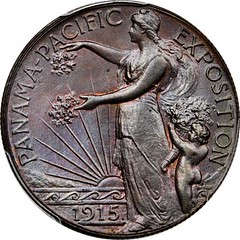
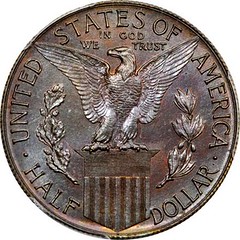
Intriguing and Exceedingly Rare 1915 No S Panama-Pacific Half Dollar
Only Four Known
1915 Pattern Panama-Pacific Exposition Commemorative Half Dollar. Judd-1792/1962, Pollock-2030. Rarity-8. Copper. Reeded Edge. Proof-67 RB (PCGS). Secure Holder.
Struck from the regular dies of the Panama-Pacific Exposition commemorative half dollar, but without the S mintmark.
The exact reason for producing the extremely rare off-metal strikings of the Panama-Pacific Exposition half dollar without mintmark have been debated by numismatic scholars over the years. Are they legitimate patterns, or are they fantasy pieces struck to create a numismatic rarity? Research by Roger W. Burdette published in the 2007 book Renaissance of American Coinage: 1909-1915 sheds considerable light on the backstory.
With the authorizing legislation for the Panama-Pacific coins stating that they were to be struck at the San Francisco Mint, Philadelphia Mint Superintendent Adam Joyce believed that adding the S mintmark was unnecessary. Accordingly, the first half dollar dies were prepared without the mintmark. These were preceded on their way to the San Francisco Mint by the first Panama-Pacific gold dollar dies, which also lacked the mintmark. When these dies arrived in San Francisco on April 27, Mint Director Robert Woolley happened to be present and immediately objected to this omission. The ensuing correspondence between Woolley and Joyce (published in Burdette) explains what transpired and why,
To read the complete lot description, see:
1915 Pattern Panama-Pacific Exposition Commemorative Half Dollar
(https://auctions.stacksbowers.com/lots/view/3-52DZZ)
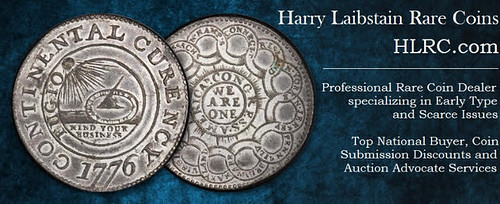
1847 ZACHARY TAYLOR GOLD MEDAL
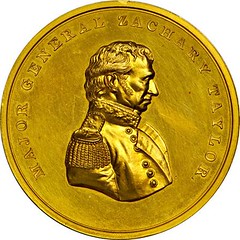
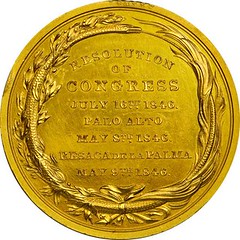
Unique Gold Medal Awarded to Gen. Zachary Taylor by Congress For Defeating the Mexican Army at Brownsville, Texas Battles of Palo Alto and Resaca de la Palma, 1846
First Auction Offering
1847 Zachary Taylor Battles of Palo Alto and Resaca de la Palma medal. Gold, 64.7 mm. 3911.7 grains. Julian MI-22, Loubat 59. Choice About Uncirculated. 5.1 mm to 5.6 mm thick. Approved by a unanimous Congress as a presentation award to Major General Zachary Taylor on July 16, 1846, this medal is truly one of a kind: the only example struck in gold and the precise specimen given to the victorious general who would soon be President.
Congressionally awarded gold medals are extraordinarily rare, particularly in private hands. Zachary Taylor was the only party to ever receive three such medals, of which this was the first awarded. Through a twist a fate, all three have survived, and Stack's Bowers Galleries has offered all three. The first, a similar medal awarded to Taylor for the battle of Monterrey, was sold in January 2005 as part of the Part VII of the John J. Ford, Jr. sale. Taylor's remarkable medal for Buena Vista achieved the world record sum of $460,000 in our November 2006 sale, a price that has never been surpassed for any medal struck by the United States Mint.
While several other pre-1900 Congressionally awarded gold medals have survived, few remain in private hands
Zachary Taylor died in 1850, just 16 months after rising to the Presidency. Five years earlier, he was a nearly unknown Army officer, a man with no political past or future. When his command was moved to Texas at the brink of the war with Mexico, Taylor was thrust into a position of prominence, one made historically significant when Texas was declared a state in December 1845. War followed soon thereafter. Taylor and his men, stationed near the Rio Grande, were at the tip of the spear, and by the time war was declared in May 1846 he had already won the first major victory of the war. The battles of Palo Alto and Resaca de la Palma were fought on successive days, May 8 and 9, 1846, on what is today American soil near Brownsville, Texas. Inflicting significant casualties against a superior Mexican force, Taylor and his men chased his opponents across the Rio Grande. A week later, Taylor followed, taking his army onto what is today Mexican soil. Taylor's leadership received plaudits for the September 1846 battle at Monterrey and the enormous February 1847 battle at Buena Vista, and he became a national hero. Mexico City fell in September 1847, and a truce was declared in March 1848. Within a few months, Taylor was a leading Presidential candidate, a non-political being wooed by both parties.
On July 16, 1846, Congress unanimously voted to give Taylor a gold medal recognizing his victories near the Rio Grande; this is that medal. Mint Director Robert Maskell Patterson communicated with William L. Marcy, the Secretary of War, in December 1846, dictating the designs and size of the medal to be struck. Patterson calculated the expense of "8 oz fine gold," as close to pure as technology then allowed, at $165.36. The dies would cost an addition $600, plus $5 for an appropriate case and some other minor expenses. A number of bronze specimens and a silver gilt striking to be given to President James K. Polk were also authorized. The portrait was accomplished by John Gadsby Chapman, while the inscription and simple design of the reverse was suggested by Patterson himself.
The presses at the Philadelphia Mint were powerful enough that, despite the remarkable high relief of the obverse, this medal was struck only once. The same obverse, and a nearly identical reverse, was featured on Taylor's medal for Monterrey (misspelled Monterey on the medal). The medal he was awarded for Buena Vista was both larger and more intricate of design, likely because Taylor was the sitting President by the time it was struck. This medal, the first voted by Congress for a military action after the War of 1812, represents a pivot point in the history of the Congressional Gold Medal series. All that preceded it were awarded for victories, by land or by sea. After this medal, beginning with the 1847 medal for the mission to save the men of the U.S.S. Somers, Congress voted gold medals to veterans of rescue missions, technological innovators, philanthropy, and more. In the 20th century, Congressional gold medals were voted for primarily non-military figures: Lindbergh, Edison, Walt Disney, Arnold Palmer, and many more.
To read the complete lot description, see:
1847 Zachary Taylor Battles of Palo Alto and Resaca de la Palma medal.
(https://auctions.stacksbowers.com/lots/view/3-512GA)
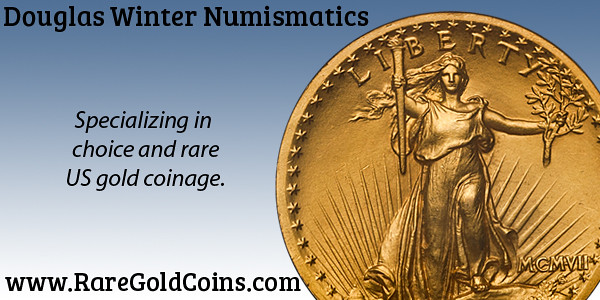
SHEVLIN'S SO-CALLED DOLLAR PRICE LIST #9 SELECTIONS
HK 11C SO-CALLED DOLLAR BOMBARDMENT OF FORT SUMTER – 1861
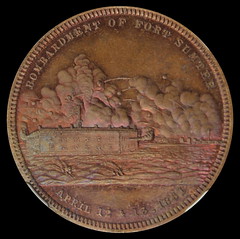
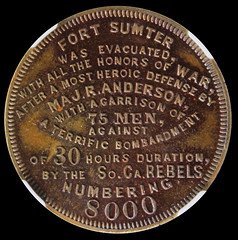
Bolts of lightening flash from the surfaces and the sound of thunder rings in your ears when you examine this Fort Sumter medal. Commemorates the initial engagement of the Civil War. Obverse features a battle scene with cannonballs flying, reverse legend about 75 heroic men defending the fort from an invasion of 8,000. Struck in copper and an R7 with an estimated 5-10 thought to exist. NGC MS 65 RB, Ostheimer Collection, TOP POP, none finer……….………….…………….……..$3,195.00
HK 15 SO-CALLED DOLLAR PILGRIM JUBILEE MEMORIAL – 1870
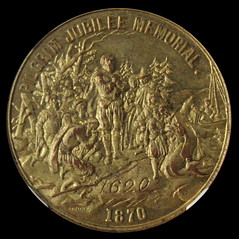
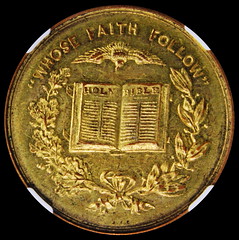
Struck in 1870 to commemorate the 250th anniversary of the Landing of the Pilgrims. Detailed scene on the obverse features the Pilgrims kneeling and praying, grateful to have made it to America. The Holy Bible is open on the reverse centered in a large wreath with a large bird flying above. Although cataloged as brass this is actually gold-plated as all were made. NGC MS 64, only 9 graded finer……………………….……..……...………………………..…………..$345.00
HK 21 SO-CALLED DOLLAR U.S. CENTENNIAL EXPOSITION OFFICIAL MEDAL – 1876
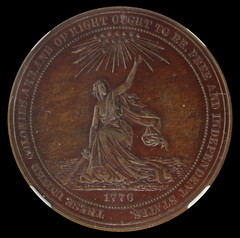
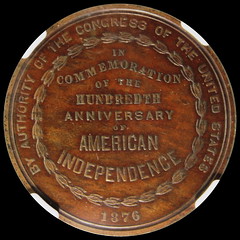
To commemorate the 100th anniversary of the signing of the Declaration of Independence. Authorized by Congress and struck in the Mint Exhibit at the Exposition. On the obverse is Liberty rising with sword in hand. The United States was sending a message to the world with the design of the official medal for the 1876 Centennial Celebration. Liberty is in a reclining position rising up, reaching for the stars symbolizing that the United States will be recognized as a world power. At that time most of Europe considered the United States to be a third world country. Struck to commemorate the 100th anniversary of the signing of the Declaration of Independence. This medal was designed and engraved by William Barber and sold at the 1876 Centennial Exposition. Struck in Bronze. NGC MS 62 BN………. ……………………………………………………..……….……………...…...…$450.00
HK 120C SO-CALLED DOLLAR MASSACRE OF WYOMING CENTENNIAL – 1878
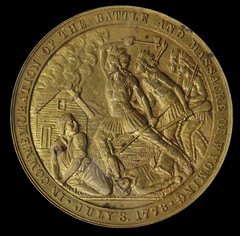
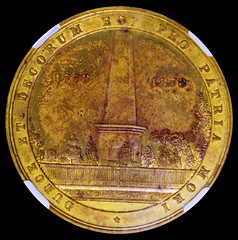
The scene on the obverse depicts Indians with tomahawks raised in their hands attacking a family of settlers, a house is burning in the background. On the reverse is a memorial monument with the legend “Dulce et decorum est pro patria mori”, which translated means: “It is a sweet and noble thing to die for one’s country.” Dies engraved by George T. Morgan, and not listed in Julian’s book of U.S. Mint medals. Struck in Gilt, Gold-Plated and an R7 with an estimated 11-20 surviving examples. NGC MS 65, Ostheimer Collection, TOP POP, finest graded by NGC……………………...………$1,650.00
HK 296 SO-CALLED DOLLAR WELLS FARGO & COMPANY SEMI CENTENNIAL – 1902
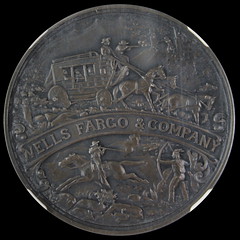
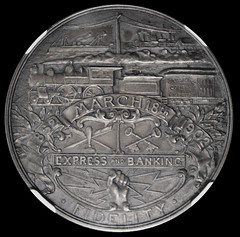
Struck in silver in 1902, the medal was given to each employee who had worked for Wells Fargo for one year or more. Obverse displays a fascinating design of a stagecoach with guns firing at robbers above and a pony express rider being attacked by Indians below. The reverse depicts ships, trains and various symbols of industry and progress. Struck in Silver. NGC MS 63………………………………………………………………………………………………..$1,485.00
So-Called Dollar Fixed Price List available
The ninth comprehensive fixed price list of So-Called Dollars is currently available from Jeff Shevlin the So-Called Guy. The price list
has over 50 pages of certified and raw so- called dollars for sale as well as world’s fair and commemorative medals. Dozens of
exceptionally rare and finest known So-Called Dollars are offered for sale as well as inexpensive yet historically significant medals that
will be of interest to collectors that are new to this series. Each medal is individually described and priced. So-Called Dollars are US
historical medals approximately the size of a silver dollar.
The 2nd edition of the Mega Red Book, the Guide Book of United States Coins Expanded Edition, which came out in April has a special 18 page section dedicated to So-Called Dollars. Sixty types and over 300 varieties are showcased with outstanding photographs, descriptions and values.
To obtain your free copy of the Fixed Price List contact Jeff Shevlin (So-Called Guy) email SoCalledGuy@Hotmail.com call (916) 955-2569 or mail 1894 E William St., Suite 4-240, Carson City, NV. 89701. Information is also available on his web site www.So-CalledDollar.com
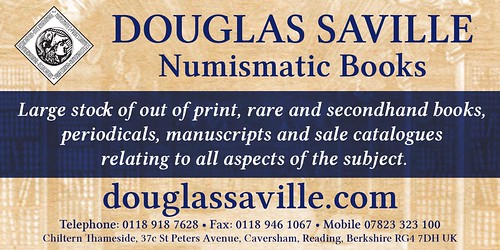
STAIRCASE PAINTED TO LOOK LIKE BOOKS
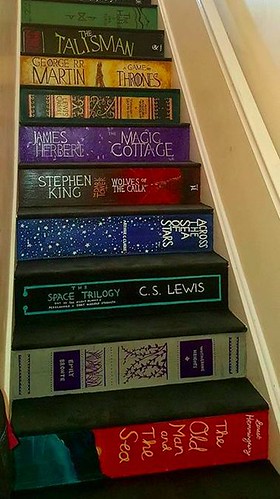 Sometimes, displaying our most beloved books on a shelf just doesn't cut it. And when it comes to doing justice to the extent of our
bookwormery, loud and proud is the way forward.
Sometimes, displaying our most beloved books on a shelf just doesn't cut it. And when it comes to doing justice to the extent of our
bookwormery, loud and proud is the way forward.
Pippa Branham of Liverpool, UK, decided to go all out with her love of books and paint her staircase with her and her husband's preferred reads.
In a Reddit post, Pippa's husband, Jon, wrote about her masterpiece, which was inspired by a Pinterest post.
"It took her quite a while and was a project initiated out of a money saving venture to avoid having to splash out on carpet money [and] fitting money (didn't trust me to lay carpet on stairs)," wrote Jon.
"I think this looks 100x better than any carpet," Jon continued.
"I used a tonne of masking tape and painted the treads black with gloss and added a small amount of sand to the mix to make a grip," Pippa told Mashable.
Pippa then painted each stair's base a different color and went from there.
To read the complete article, see:
This book nerd painted her staircase to look like her favorite
books (http://mashable.com/2016/07/20/book-nerd-staircase/#SAl.DlL7Yuqi)
SILVER COINS OF THE CENTRAL AMERICAN REPUBLIC
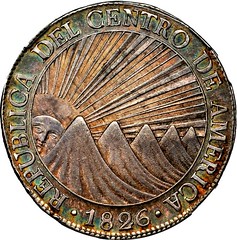 The present topic is the CAR silver coins of the independent societies of Costa Rica, Guatemala and Honduras, those minted under the banner
of the Central American Republic (CAR). The designs are very attractive. It is easy to assemble a type set, and collecting particular denominations
‘by date’ (and Mint location) is mildly practical. Although there are some extreme rarities, most CAR coins are very much affordable in the context
of rare or very scarce 19th century silver coins.
The present topic is the CAR silver coins of the independent societies of Costa Rica, Guatemala and Honduras, those minted under the banner
of the Central American Republic (CAR). The designs are very attractive. It is easy to assemble a type set, and collecting particular denominations
‘by date’ (and Mint location) is mildly practical. Although there are some extreme rarities, most CAR coins are very much affordable in the context
of rare or very scarce 19th century silver coins.
From a military perspective, the region of Central America is strategically important as a narrow piece of land connecting North America and South America while bordering both the Atlantic and Pacific Oceans. The main purpose of the CAR was security.
The Central American Republic (CAR) was a loose federation, rather than a true republic. It was generally known, to English speaking people, as the Federal Republic of Central America. The CAR was a strategic alliance with minimal governmental and law enforcement functions.
For some time, all of Central America between Panama and Mexico was part of this ‘federation,’ including the regions that now constitute the nations of Costa Rica, Guatemala, Nicaragua, El Salvador and Honduras. Briefly, the CAR included a sixth state, Los Altos, which was later sliced into two parts. One part of Los Altos was incorporated into Guatemala and the other became part of Mexico.
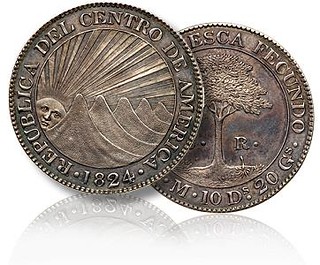 CAR coins are known for their very distinctive and unusually appealing design, with the sun overlooking mountains on the obverse and a
memorable tree on the reverse. Many post-1840 Costa Rican and Guatemalan coins continued to feature the designs of the CAR coins, as if the
federation still existed. These are collected as CAR coins and/or as coins of the respective societies. Essentially, CAR coins continued to be minted
for many years after the CAR dissolved.
CAR coins are known for their very distinctive and unusually appealing design, with the sun overlooking mountains on the obverse and a
memorable tree on the reverse. Many post-1840 Costa Rican and Guatemalan coins continued to feature the designs of the CAR coins, as if the
federation still existed. These are collected as CAR coins and/or as coins of the respective societies. Essentially, CAR coins continued to be minted
for many years after the CAR dissolved.
A basic type set of CAR silver would include the following nine coins:
Quarter-Real (1824-51)
Half-Real (1824-45) 90.3% silver
Half-Real (1846-49) 75% silver
One Real (1824, 1828, 1830-31) 90.3% silver
One Real (1848-49) 75% silver & Different Reverse
Two Reales (1825) Small Tree & Abbreviated Reverse
Two Reales (1831-32) Standard CAR Design
Two Reales (1849) 75% silver & Different Reverse
Eight Reales (1824-46)
To read the complete article, see:
Silver Coins of the Central American Republic
(www.coinweek.com/featured-news/silver-coins-central-american-republic/)
THE BOOK BAZARRE
SCOTLAND CONSIDERING A SEPARATE CURRENCY
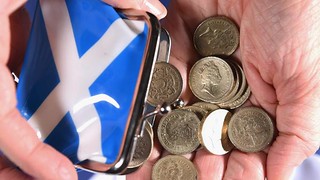 The SNP is considering plans to establish a new currency in an independent Scotland and abandon its policy of retaining sterling.
The SNP is considering plans to establish a new currency in an independent Scotland and abandon its policy of retaining sterling.
A team of Nationalist MPs assessing options is expected to report to the first minister after the party’s previous position was blamed for losing votes in the 2014 referendum.
Sir Nicholas Macpherson, former permanent secretary to the Treasury and a critic of independence in 2014, said last week that the Nationalists and their allies had a “golden opportunity” to recast their case after Brexit and should plan for a separate currency backed by a central bank.
To read the complete article, see:
SNP team looks at new currency to
replace pound (www.thetimes.co.uk/article/snp-team-looks-at-new-currency-to-replace-pound-bbrvsx5tm)
BANKNOTE MUSEUM OF THE IONIAN BANK
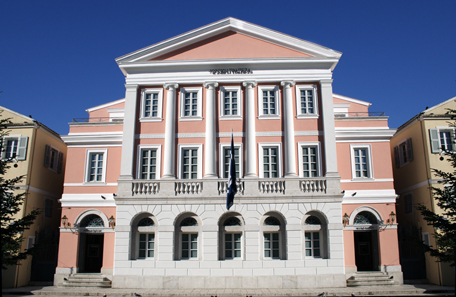
In the Museum visitor can see all issues that were circulated by the editorial banks and beyond, throughout the history of the modern Greek State. The Collection includes banknotes paper coins, documentation and related material, covering 180 years history of the Greek banknote: starting from the revolutionary Bonds in piastres issued by the of the Provisional Administration of Greece in 1822, the first phoenix of Kapodistrias circulated in 1831, and reaching up to the last drachmas which have been withdrawn in 2002 with the introduction of the Euro.
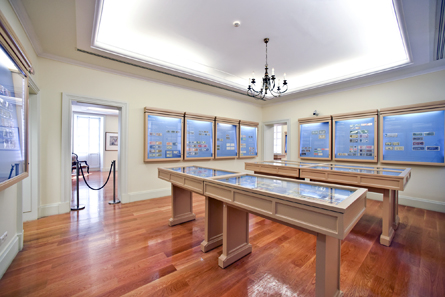
At the permanent exhibition tours and educational programmes are organised. The second floor is available for organising temporary exhibitions.
Aghiou Spyridonos Square
(Iroon Kypriakou Agonos Square)
GR-491 00 CORFU
To read the complete article, see:
(http://www.alphanumismatics.gr/collection.aspx?id=6&lang=en)
BANKNOTE MUSEUM OF THE IONIAN BANK - CORFU
To read the Coins Weekly article, see:
New Permanent Exhibition at
Corfu's Banknote Museum (/www.coinsweekly.com/en/News/New-Permanent-Exhibition-at-Corfus-Banknote-Museum/4?&id=4203)
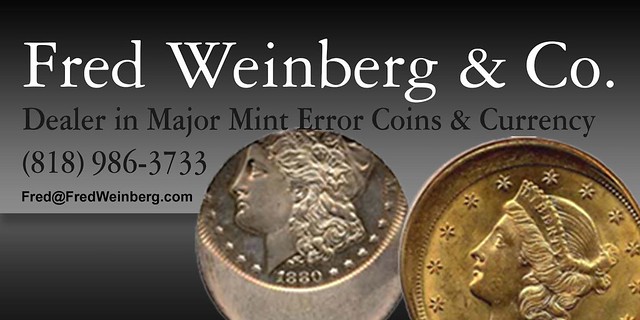
1847 NAVAL SILVER GENERAL SERVICE MEDAL
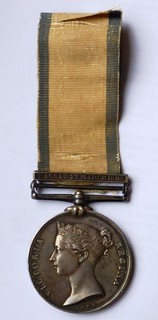 “The rarest medal I have ever had the privilege to offer up and sell” said Martin Lambert fine art auctioneer with Tayler and Fletcher
based in Bourton-on-the-Water.
“The rarest medal I have ever had the privilege to offer up and sell” said Martin Lambert fine art auctioneer with Tayler and Fletcher
based in Bourton-on-the-Water.
The comment was as regards lot 260, as it turned out an extremely rare early 19th century naval silver general service medal awarded to George Augustus Schultz Lieut. R.N.
The rarity came in the form of the clasp that the medal bore “Nassau 22 March 1808”.
Originally commissioned in 1775, the Holsteen was a 60 gun ship of the line in the Royal Dano-Norwegan Navy and was captured by the British Royal Navy in the Battle at Copenhagen Rhodes on April 2, 1801 and subsequently renamed HMS Holsteen and then HMS Nassau.
On April 12 1801, the British sent Holsteen back to Britain as she was the only one of the ships of the line that the British chose to keep and between March and September 1805, Perry and Co, Blackwell repaired her at a cost of £22,022 and she was renamed Nassau and commissioned in September under captain Robert Campbell for the North Sea.
The fascinating history that ensued with this vessel is certainly worth reading and researching and it is fair to say that she saw more than her fair share of action and was involved in the capture of a number of hostile ships, one such event being on March 22, 1808 when the Nassau and the 64 gun Stately destroyed the last Danish ship of the line ‘Prins Christian Frederik’ at Grenaa, of the East Jutland coast in the battle at Zealand Point.
The battle cost Nassau one man killed, one man missing and sixteen men wounded.
In 1847, the admiralty awarded the naval general service medal with clasps “Stately 22 March 1808” and “Nassau 22 March 1808”, to any still surviving crew members of those vessels that chose to claim them.
It is recorded as a statement of fact on the medal roll that only 31 men claimed the medal with the Nassau 22 March 1808 clasp.
Bidding in the room started hesitantly as a bank of no less than five telephones awaited in the wings to compete for the prize, sadly though, all of the telephone bidders and assembled bidders were disappointed as the live global internet bidding screen flashed yet one further bid to top any bids that the auctioneer already had and this culminated in the magnificent final hammer price of no less than £17,000 tendered by a major London medal dealer, no doubt realising the extreme rarity of the item offered.
To read the complete article, see:
Incredibly rare
medal thrills auctioneers Tayler and Fletcher (www.wiltsglosstandard.co.uk/news/14628075.Incredibly_rare
_medal_thrills_auctioneers_Tayler_and_Fletcher/)
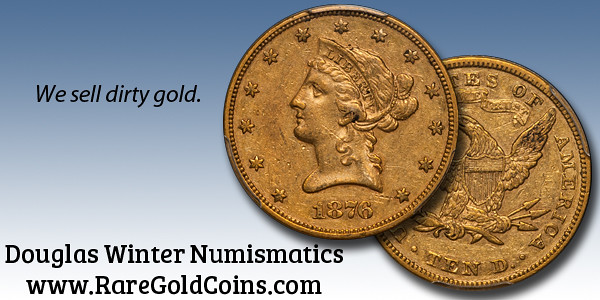
WHY OLYMPIC GOLD MEDALS AREN'T GOLD
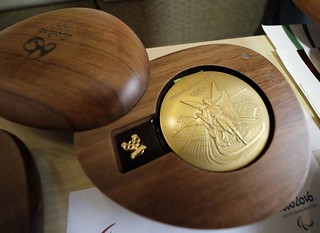 Gold medals are the ultimate prize in Olympic sport.
Gold medals are the ultimate prize in Olympic sport.
They’re also a misnomer.
There’s no such thing as a “gold” medal, not at these upcoming Rio Olympics — and really, not ever. Second-place finishers get silver medals and oddly enough, so do the winners, albeit theirs are plated in a tiny amount of gold.
That factoid caught even some of those who were put in charge of making the 5,000 or so medals needed for these Rio Games by surprise.
“Our operators and some of our developers had the same question,” said Victor Hugo Berbert, who managed the medal-making process and was part of a team of about 100 people at the Brazilian Mint who were part of the project. “We can produce medals out of pure gold. But we know how expensive they are. So gold medals ... are not exactly pure gold.”
They’re barely gold at all.
The medals given to champions at these Olympics will weigh just over a pound, so to make them entirely from gold would have cost about $23,500 in material, each. By taking the silver medals and then plating them in a tiny amount of Brazilian gold, the actual value of the metal inside those metals is about $600.
Not that the athletes will mind.
“The gold medal,” hockey legend Wayne Gretzky famously said at the Salt Lake Olympics in 2002 when he was executive director of the gold-winning Canadian team, “is everything.”
Though there are a number of exceptions, it’s not uncommon for the medal-making process to fall to the host country’s national mint. That was the case this year, with Berbert saying it took about two years for the entire process to play itself out — starting with discussions on design with the host organizing committee, sketches, ideas, budgeting and ultimately approval from the International Olympic Committee.
The mint will store the medals and basically deliver them to the organizing committee on a day-to-day basis — the medals that will be awarded on a given day will be kept safe as can be until needed.
“We have special dates with the committee where they want them delivered,” Berbert said. “There are logistics on how to transfer them to them ... until then, we keep the medals in a safe room. But all the Olympic medals are packaged now, identified by the event and competition, all organized and ready to be delivered.”
Ready to be won, too.
Interesting article, though. Read the complete version online for more about the mint's experience. -Editor
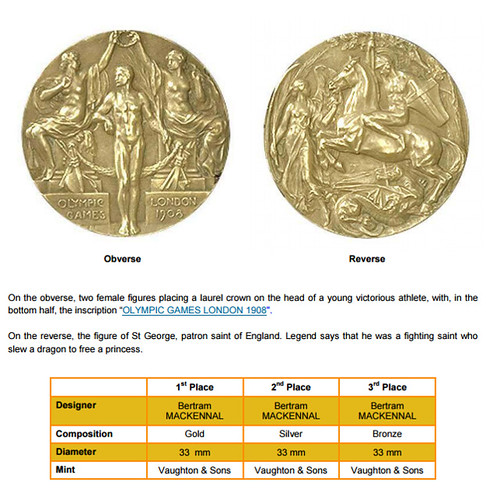
London 1908 Olympic medal
To read the complete article, see:
Olympic Summer Games Medals from Athens 1896 to London 2012
(https://stillmed.olympic.org/media/Document%20Library/OlympicOrg/Factsheets-Reference-Documents/Games/Records-and-Medals/Reference-document-OG-Medals-from-Athens-1896-to-London-2012.pdf#_ga=1.159468472.46692100.1466942282)
To read the complete article, see:
Gold medals in Rio are barely gold at all. Here’s why.
(www.washingtonpost.com/sports/olympics/gold-medals-in-rio-are-barely-gold-at-all-heres-why/2016/07/20/0b76c1ea-4e9b-11e6-bf27-405106836f96_story.html)
2016 RIO OLYMPIC 50 PENCE STRUCK IN GOLD
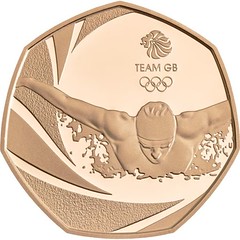 Welsh swimmer Jazz Carlin has helped to strike an official Team GB commemorative 50p coin at the Royal Mint. Carlin, who secured her
Olympic place earlier this month, produced a gold edition 50p at the mint in Llantrisant, Rhondda Cynon Taff.
Welsh swimmer Jazz Carlin has helped to strike an official Team GB commemorative 50p coin at the Royal Mint. Carlin, who secured her
Olympic place earlier this month, produced a gold edition 50p at the mint in Llantrisant, Rhondda Cynon Taff.
The 25-year-old said: "I can't wait for the next few months, putting in the last hard work in training."
The Olympic Games in Rio de Janeiro begin in 100 days. The 50p piece is available in silver, gold and platinum and is priced from £5.
Anne Jessopp, the Royal Mint's director of commemorative coin, said: "We are thrilled to be able to show our support for Team GB in this way, and celebrate the talent, dedication and Olympian spirit of the athletes chosen to represent us in what we hope will be yet another piece of Great British sporting history for the team."
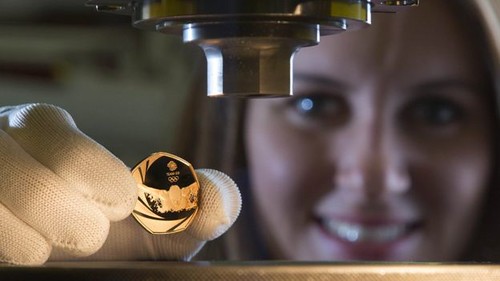
David adds:
It is a good design. People are still collecting the 50 p series from the last Olympics.
To read the complete article (and watch the video), see:
Swimmer Jazz Carlin makes Team GB 50p coin at Royal Mint
(www.bbc.com/news/uk-wales-36143719)
HOT CENTS INFLICT THIRD DEGREE BURNS
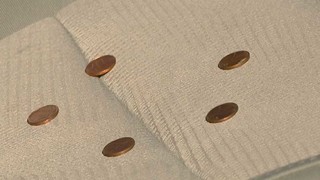 In Oklahoma heat, some spare change in a hot car can lead to a trip in the hospital. Just ask one woman from Moore. “Excruciating pain. It
was just horrible pain I've never felt before in my life,” she said.
In Oklahoma heat, some spare change in a hot car can lead to a trip in the hospital. Just ask one woman from Moore. “Excruciating pain. It
was just horrible pain I've never felt before in my life,” she said.
Melissa Sechrist, 48, of Moore, said standing outside her apartment. She can barely walk, sit or lie down after being burned by pennies left sitting inside her car on a hot day.
“The pennies were right here, I lifted my cup and they fell onto my seat like in here and that's where when I got in I stuck my leg over there and they got in my leg,” Sechrist said leaning into her Ford Explorer and pointing at the cup holder where the coins had sit before.
It happened last Wednesday, but Sechrist thought icing it would solve the problem until the burns started to blister. She finally went to a hospital on Sunday. When she did, doctors were shocked.
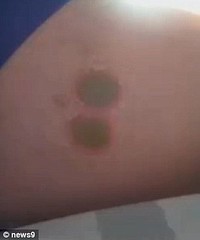 “The doctor actually when she came in and lifted my shorts up,” Sechrist said mimicking the doctor by leaving her mouth agape and bulging
her eyes. “Her eyes got real big and she kind of jumped back. She'd never seen anything like it!”
“The doctor actually when she came in and lifted my shorts up,” Sechrist said mimicking the doctor by leaving her mouth agape and bulging
her eyes. “Her eyes got real big and she kind of jumped back. She'd never seen anything like it!”
Sechrist was told the copper coins had left her with third-degree burns on the back of her thigh. Third-degree is the most severe on the medical scale, capable of melting skin damaging nerves and even potentially hurting the underlying muscle.
She said she had been given antibiotics to avoid an infection. Her wounds, which have started heal but still have a yellow tint inside red circles, are also being treated by a cream, Sechrist said she was also given medication to help mitigate any pain.
But Sechrist wanted to get a warning out more than anything else, hoping this doesn't happen to anyone else.
“Everybody needs to watch for coins on their seats because it does burn. I would hate to see a child with these kind of burns on their legs,” she said.
To read the complete News9 article, see:
Woman Receives Third Degree Burns From
Pennies (www.news9.com/story/32494442/woman-receives-third-degree-burns-from-pennies)
To read the complete Daily Mail article (and watch the video), see:
Pennies from hell! Woman
suffers horrific third-degree burns from copper COINS left in a hot SUV Read more:
http://www.dailymail.co.uk/news/article-3701775/Woman-suffers-3rd-degree-burns-pennies-left-hot-SUV.html#ixzz4FJlpPUnS Follow us:
@MailOnline on Twitter | DailyMail on Facebook
(http://www.dailymail.co.uk/news/article-3701775/Woman-suffers-3rd-degree-burns-pennies-left-hot-SUV.html)
FEATURED WEB SITE: ORDERS AND MEDALS SOCIETY
This week's Featured Web Site is the Orders and Medals Society of America (OMSA).Welcome to the Orders and Medals Society of America (OMSA) Website and the world of orders, medals and decorations!
For those that do not know us, OMSA has a current membership of more than 1,500 members with members in every state and some twenty-five foreign countries. Membership is available by application under terms specified in the Society’s Constitution and By-Laws.
The purpose of OMSA is to foster and promote the educational development of interested parties though the research, recording and dissemination of information and knowledge of orders, decorations medals and other honors, past and present, military and civil, of the world community of nations.
At the same time, our members strive to honor the memory and the accomplishments of the individuals who earned the awards, and to promote the appreciation and preservation of these artifacts for future generations. In no manner does OMSA condone the misuse of any such orders or medals of merit of any nation, or the fraudulent representation thereof.
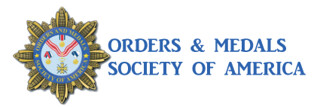
www.omsa.org

